What is your liver and what does it do? Well, the liver is the second largest organ in our body and participates in a lot of bodily activities. It helps clean the blood by removing harmful toxins from your body. In addition, it also produces bile, which helps its digestive organs break down fatty components. In addition to these, it also stores vitamins, glycogens and other essential minerals for emergency purposes.
In addition, unlike any other organ, the liver can also regenerate itself. So if you get damaged by any means, you can quickly repair your cells in just a few days. However, people can also develop liver disease. Sometimes it comes from lifestyle choices, such as what you eat and drink. Read on to learn about liver function along with foods that can help protect it, especially if you have liver disease.
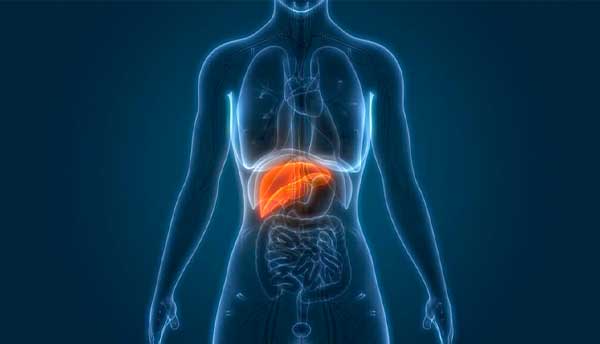
The liver is on the right side of your body.
The liver is located in the right part of the abdomen. It is also in the upper intestines, right kidney, and below the diaphragm. Are you between 21 and 65 years old? If you are otherwise a healthy person, then your liver weighs about a kilogram, or a little more than that. It has two different lobes. Doctors refer to them as the right lobe and the left lobe. If you’ve seen a liver, either in a book or in a lab, you may have noticed that a ligament separates the two lobes. Medically, doctors call this a sickle cell ligament.
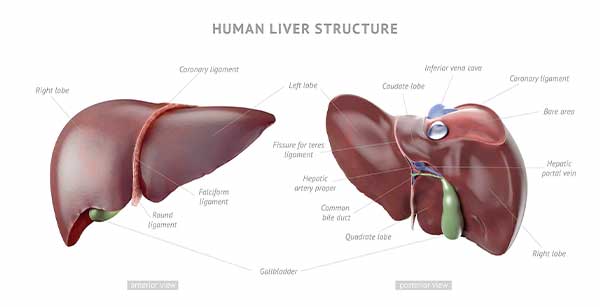
In addition to separating the lobes from the liver, this thin but wide ligament also helps the organ stay attached to the diaphragm. The outside of the liver is covered by the glisson capsule, a membrane made of connective tissue. It also protects the portal vein, hepatic artery, and bile ducts. The peritoneum, a large, thin layer of tissue that lines the abdomen, covers glisson’s capsule. It keeps the liver in place and protects it from damage caused by friction. While all this information may sound too technical, the important thing is to take good care of your liver because it’s a vital organ.
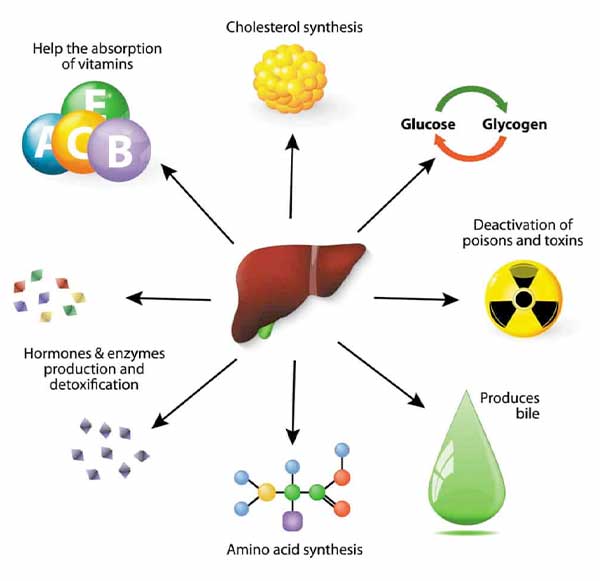
One function of the liver includes the production of bile.
As mentioned earlier, your liver is generally associated with a wide variety of bodily functions. These are some of them. The liver is best known for making bile, a digestive juice that helps digest vitamins, cholesterol, and fats. Bile is made up of cholesterol, bilirubin, water, and some electrolytes. It is secreted by hepatocytes, which are collected into a tube known as canaliculi bile. Once the collection procedure is completed, the biliary tract from the liver takes it into the duodenum and stores it there. Cystic ducts, which are located in the duodenum, help with the bile movement procedure.
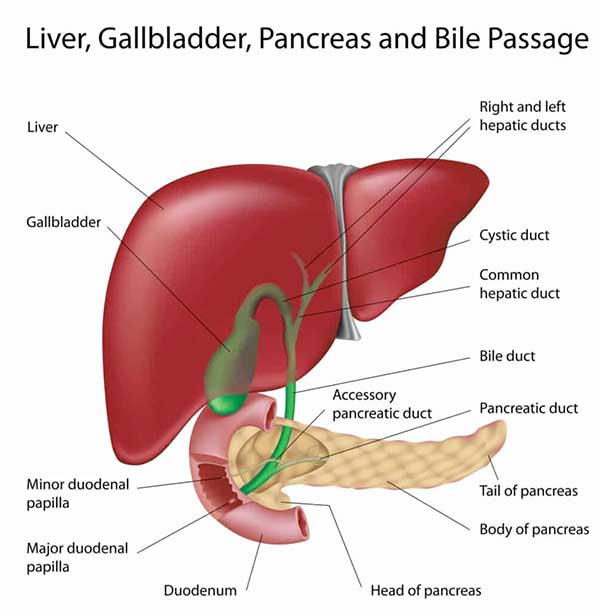
Bile is also known as gall, and your body makes about half a liter per day (less if you’re a smaller person, more if you’re a larger person). Because bile is needed to absorb fat, you need it to properly use fat-soluble vitamins. That includes vitamin e, vitamin k, vitamina, and vitamin d. because bile is alkaline, it has the critical task of neutralizing stomach acid before it enters the small intestine so your body will not be accidentally digested. Excess bile will build up in the gallbladder and cause gallstones, but not enough bile will make you unable to digest anything related to fat.
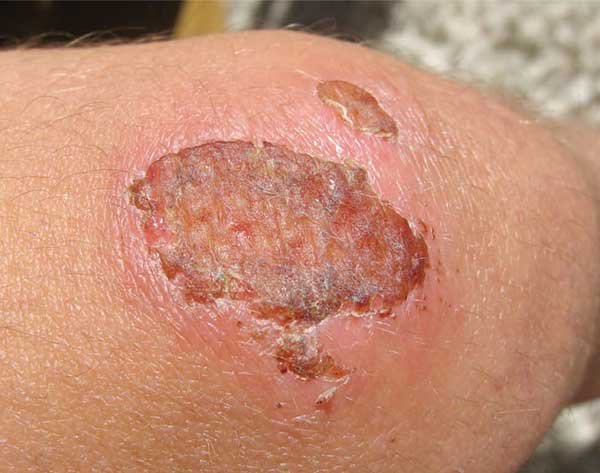
The liver allows blood to clot.
To properly clot and stop external bleeding, your body’s blood requires some specific clotting agents. You get them from vitamin k. so if your body doesn’t have enough supply of vitamin k, then your blood won’t clot. In turn, it can lead to serious health complications. However, your liver can help in this case. As you know, the liver makes bile, a yellowish substance that allows your body to absorb vitamin k. if the amount of vitamin k increases in your body, the liver collects it from your blood and stores it for future use.

In other words, you can get as much vitamin k as you want, but without a healthy liver, that vitamin k won’t do you any good. Fortunately, many foods that contain vitamin k, such as green leafy vegetables, are also good for the liver. For best results, be sure to eat your vegetables with some fats, such as salad dressing, if you eat them raw or sauteed with healthy oil, so you can absorb this fat-soluble vitamin. The way your body’s processes work together and depend on each other is really amazing: vitamin k, fats and liver work together to get the job done.

Bilirubin is absorbed by the liver.
Bilirubin is a chemical component that resides within your body’s red blood cells and bone marrow cells. When these cells die, they release them into the blood. A small amount of bilirubin is not harmful to health. However, if the number increases, it can affect the function of several organs. Also, this is another aspect where your liver can be your savior. As it cleans the blood, it collects the extra bilirubin, metabolizes it, and stores the iron produced in its right lobe. When your body begins to make new blood cells, it takes ina needed amount of bilirubin from your liver.
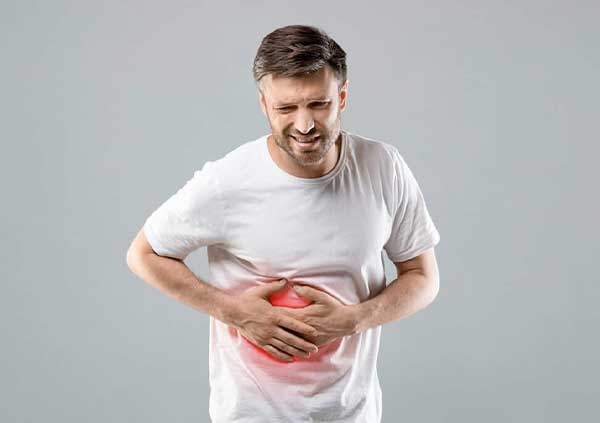
High levels of bilirubin usually indicate that you have a medical condition that needs to be treated right away. You may have gallstones, caused by too much bile that is not being reabsorbed by the liver, or hemolytic anemia, caused by a buildup of broken down red blood cells. You may also have a liver condition, such as hepatitis, bile duct inflammation, cirrhosis, or even liver cancer. Either something outside your liver is causing you to create too much bilirubin, or something inside your liver prevents you from absorbing bilirubin. The underlying conditions involved can be fatal if left untreated.
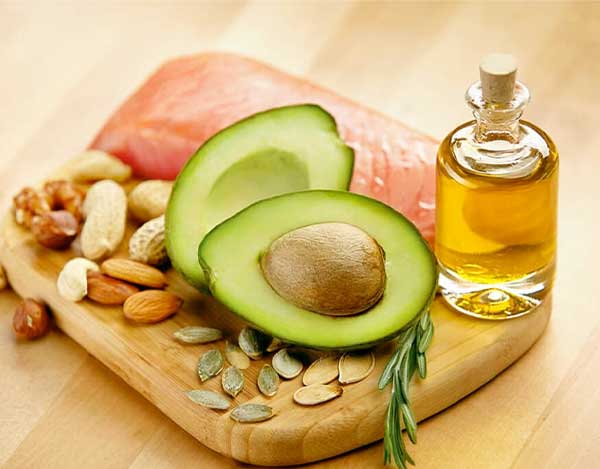
The digestion of fat is a function of the liver.
Fats, especially dietary fats, are essential to your body. They provide much-needed energy that helps you function throughout the day. In addition, they also support cell growth and help your body produce several essential body hormones. Some people worry about eating fat because they think fat makes you fat, but that idea couldn’t be more false. Fats are necessary for many body functions, as long as you’re getting healthy fats. While monounsaturated fats in avocados and olive oil, as well as omega-3s in eggs and chia seeds, can be extremely beneficial to overall health, artificial trans fats in margarine and chips should be avoided.
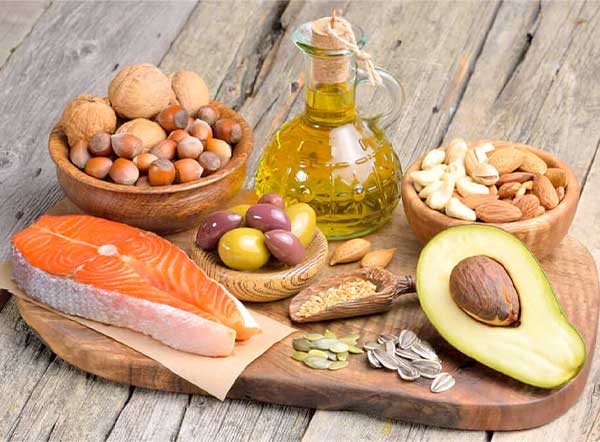
Because fats are slightly heavier than other dietary components, your body needs bile to absorb them properly. It also USES some specific hormones produced by the liver to further break down the fatty components and facilitate the absorption procedure. The calories from these fat cells are broken down to be used for energy. Nutrients are then released from the fats. People who consume too much unhealthy fats exert incredible strain on their liver, and the result may be something called fatty liver disease. Fatty liver disease develops most often in people who consume large amounts of alcohol, but it can also occur in non-alcoholic people. It can ultimately lead to cancer and other deadly diseases.
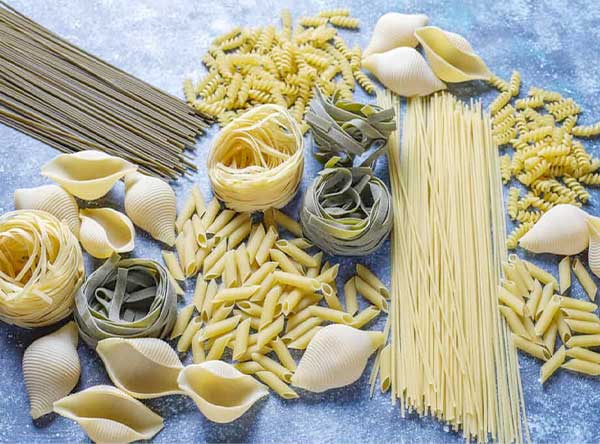
<!–page–>
The liver stores vitamins, minerals and the assimilation of carbohydrates.
In addition to helping your body in digestion, your liver also stores essential vitamins and minerals. It also collects copper and bilirubin from the blood and stores them. It releases all of these components into your body during essential body functions and emergencies. You can think of your liver as a store of extra vitamins and minerals. Your body calls in case of a deficiency. One of the reasons why the liver is considered a healthy food is that it contains so many nutrients that are stored in the bodies of animals. If you try to get lots of vitamins and minerals, your body won’t absorb them at any given time. Instead, your liver will store them.
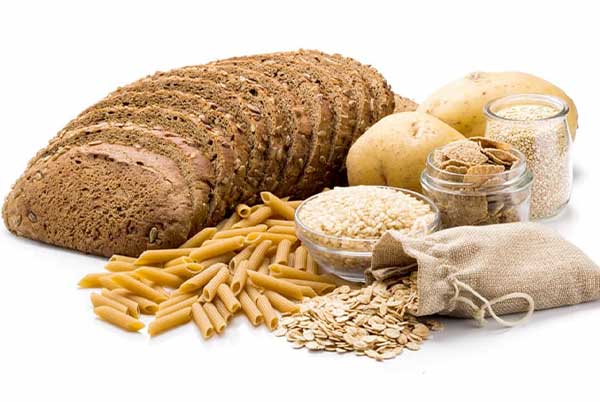
The liver stores carbohydrates and assimilates them thoroughly. These carbohydrates are broken down into glucose and transported into the bloodstream to maintain a healthy glucose level. Your body then stores the glucose produced in the liver as glycogen and USES it during physical activities to provide energy. However, there are too many carbs and you may put yourself at risk for fatty liver disease. A byproduct of carbohydrate processing is ammonia, which your liver converts into something much less toxic, urea. Urea is released into the bloodstream and collected by the kidneys, and excreted in the urine.
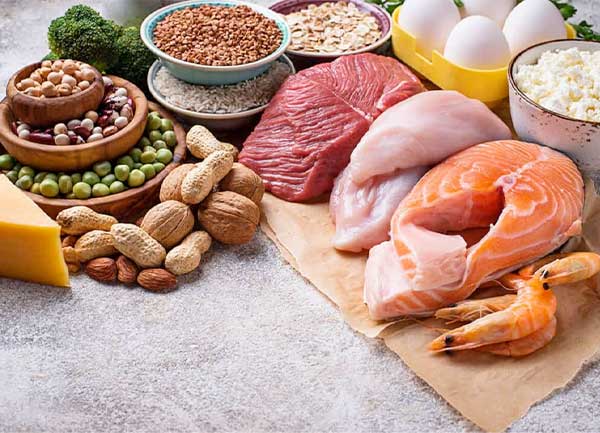
The liver metabolizes proteins within the body.
On top of all this, the liver also helps the body break down proteins. It removes amino acids (which are known to be harmful to our body) from protein components during the process. Once the removal procedure is completed, the organ converts the non-nitrogen part of the molecules into lipids and glucose. The liver synthesizes urea, thus removing ammonia from the body. Ammonia is quite harmful to your body and can seriously affect your nervous system (just think of the warning labels on the ammonia bottles you use to clean). Most diseases related to the central nervous system usually occur when the amount of ammonia in the blood increases.
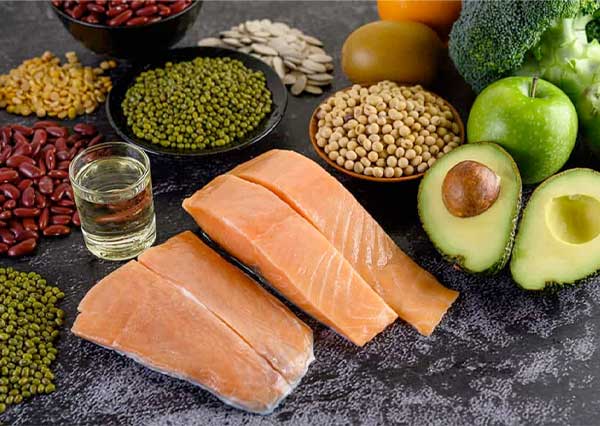
Your liver is a protein builder because it USES the amino acids in the food you eat to make the proteins your body needs. It also makes the enzymes you need to catalyze those proteins and use them properly. Also, although you may think that cholesterol is a horrible thing to avoid at all costs, your liver creates cholesterol because your body needs a certain amount! While high levels of cholesterol in food can be harmful, you need to produce some because it is a critical ingredient in hormones such as estrogen and testosterone.
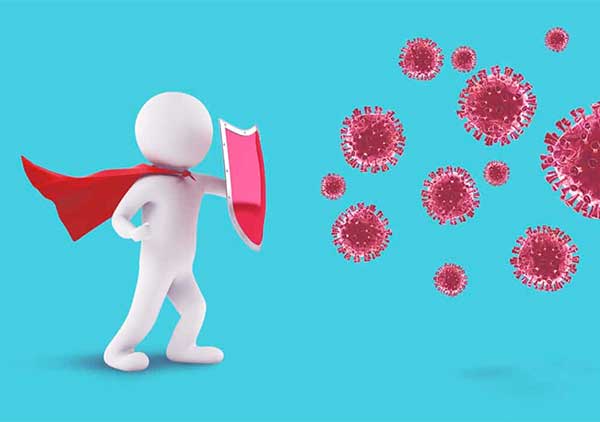
The liver strengthens the body’s immune system.
The liver also helps produce kupffer cells, which are a type of white blood cell. These cells help secrete various immune regulatory mediators and participate in the phagocytosis procedure of large particles. In addition to these, they also help protect the liver and other nearby organs from various microorganisms and viruses. Kupffer cells attack and destroy any harmful foreign agents that enter the liver through the gastrointestinal tract. Without these essential cells, the viruses and bacteria in your food could cause you to develop life-threatening infections. By the time other white blood cells were able to come to the rescue, you could already be extremely sick.
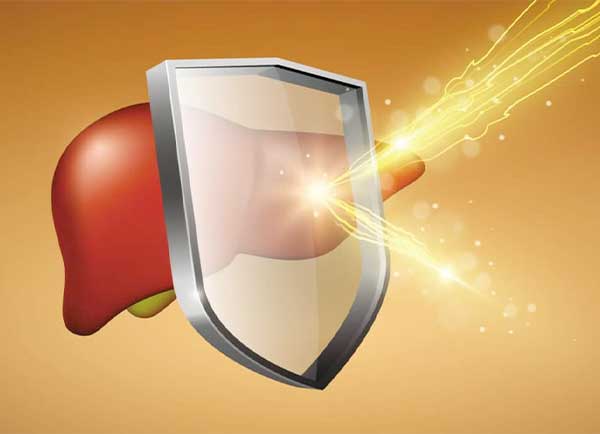
When a threat of germs is detected, your liver will automatically become inflamed to try to eliminate the threat. Chronic inflammation is problematic and can create long-term health problems. However, acute inflammation is a natural way for your body to mount an immune response. Maintaining a healthy liver that is not inflamed is critical to ensuring that when there is a possible infection, your liver can undergo this inflammation process to combat the threat. Eating the right foods that promote liver health will help ensure that this critical part of your body’s immune response functions at an optimal level to help you stay safe from potentially lethal infections.
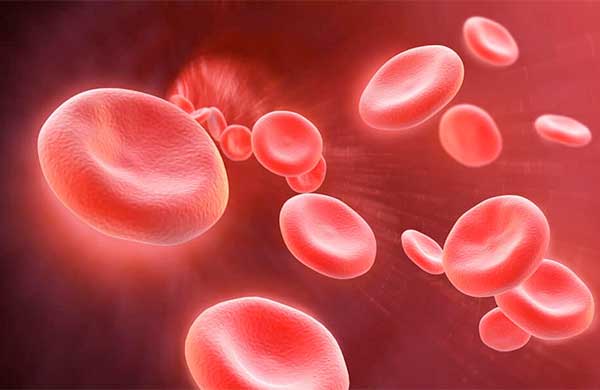
The liver filters the production of blood and albumin.
The liver helps the body filter blood and remove compounds that the body doesn’t need, such as aldosterone and the hormones estrogen. It also filters out several dangerous substances that enter the body from the outside through drug and alcohol use. As such, your liver is essential to detoxify your body, like a water filter in your home, detoxifies the water you drink. Eating and drinking too much toxins can overload your liver and damage its ability to function as a filter. To understand this concept, think about what happens to a water filter when too much dirt and dirt accumulates. You don’t want that to happen inside your body.
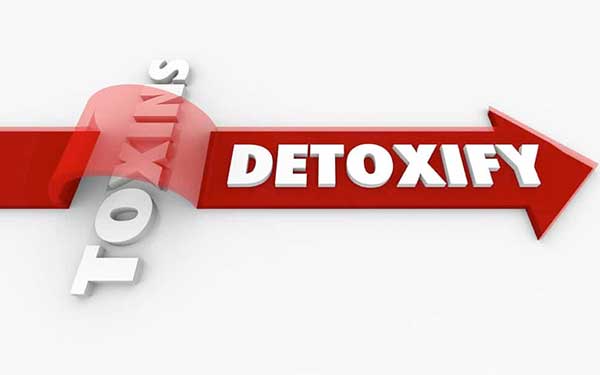
This organ produces albumin, which is the protein most commonly found in the blood serum. This component helps transport steroid hormones and fatty acids. It also helps maintain blood pressure and prevent blood vessel leakage. Your doctor may order a test of your albumin levels as part of a regular checkup; This test is designed to determine how well your liver is working. Too much albumin can cause dehydration and diarrhea, while a lack of albumin can cause fatigue, inflammatory bowel syndrome, and kidney disease. Malnutrition can also develop, not because you’re not eating enough, but because nutrients aren’t getting into your cells.
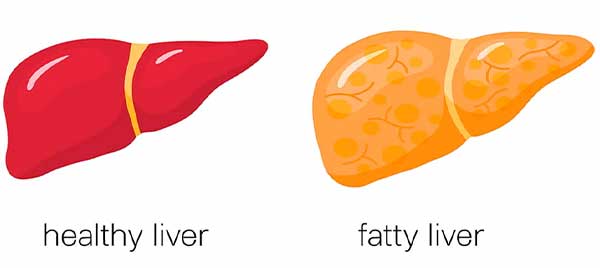
<!–page–>
Liver diseases include fatty liver deposits.
The liver is a resistant organ and can regenerate quickly. Unlike other organs, it can regrowth parts of itself, as long as it’s healthy. When people need a liver transplant, they usually agree with only part of a liver because it can regenerate. While this hepatic attribute is beneficial in most cases, the downside is that the liver generally does not show signs and symptoms of disease unless it is quite severe. You may not know something is wrong until the damage has already been done, so keeping your liver healthy and preventing damage in the first place is extremely important.
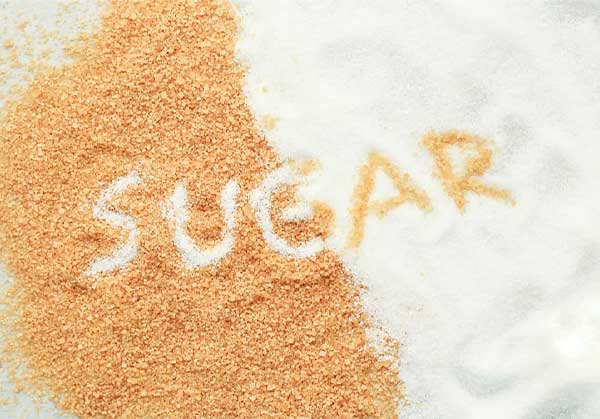
Therefore, it is imperative that you know the health conditions of the liver and the disorders that can affect the body. As the name suggests, fatty liver usually occurs when fatty substances begin to build up in the liver. It can be caused by several things, such as regular alcohol consumption, living a sedentary life, eating large amounts of fatty foods and more. Sugar is stored as fat in the liver, so eating large amounts of sugar, especially in processed foods, can also cause fatty liver disease. Ultimately, fatty liver can lead to liver cancer and liver failure, which are life-threatening conditions. You need to protect your liver from these problems.
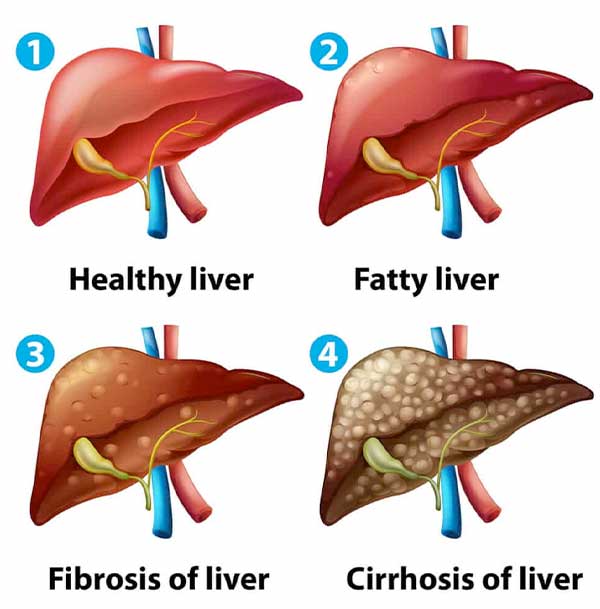
Liver cirrhosis is a dangerous health condition.
Cirrhosis of the liver, also known as cirrhosis of the liver, is a critical liver condition when the liver stops working properly. It is usually common among alcoholics or people who have suffered from fatty liver for a long time. It may also occur if a liver infection, such as hepatitis b or c, has damaged or severely marked the liver. By the time cirrhosis develops, it has already persisted. It causes long-term liver damage. There may be no symptoms at first, but as the condition progresses, the person may experience fatigue, itching, swelling of the abdomen, bruising, and jaundice (yellow skin caused by a buildup of bile).
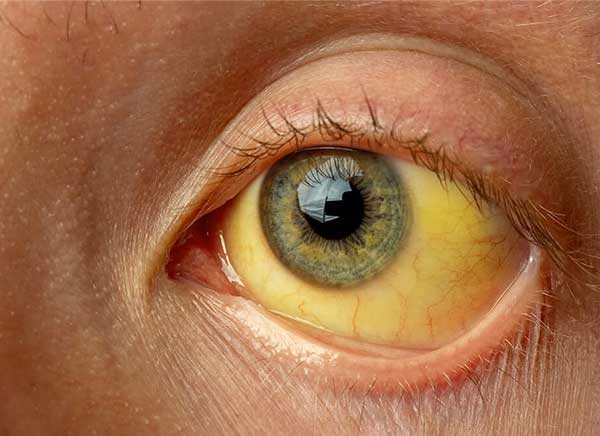
Cirrhosis of the liver is a medical emergency. It can lead to serious complications, including encephalopathy, which can affect the ability of the brain and nerves to function. Many people die each year from cirrhosis, sometimes from a sudden onset of bacterial infections from which the liver cannot defend itself. In fact, cirrhosis is the eleventh most common cause of death worldwide. Because liver disease is so difficult to detect until extensive damage has already occurred, the best defense is a good offense. Maintain a healthy diet and plenty of exercise, as well as regular doctor visits that include routine liver function tests.
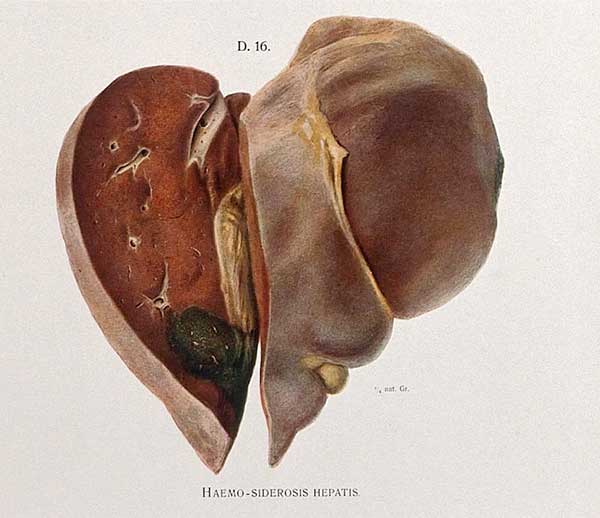
Hepatitis viruses and autoimmune hepatitis can cause liver infections.
There are five types of viruses that can cause hepatitis in the liver, namely hepatitis a, b, c, d and e. among these, hepatitis a, b and c are very dangerous. People often get them through unprotected sex with an infected person or through intravenous drug use. So be sure not to engage in these types of risky behaviors. Some of these diseases can be prevented with vaccines, but unprotected sex and intravenous drug use must be avoided at all costs. If you don’t treat these diseases quickly, they can cause scarring of the liver, which, in turn, can lead to liver cirrhosis.
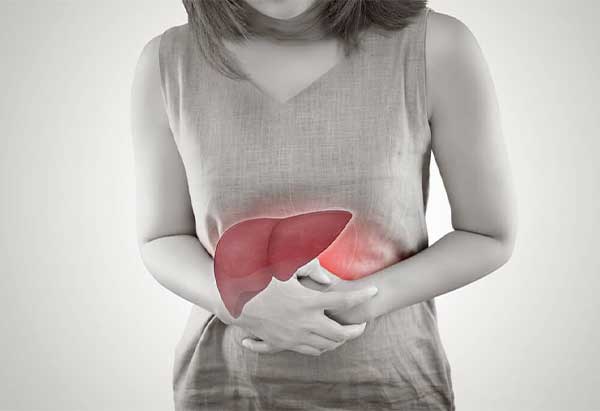
As its name implies, autoimmune hepatitis is an autoimmune disease that causes your immune system to attack the liver. It subsequently causes inflammation, not the acute inflammation that is part of a natural and beneficial immune response. This chronic inflammation can cause your liver to suffer long-term damage and inhibits the ability of the acute inflammation immune response to participate. Autoimmune hepatitis is a medical condition, which means it can last for many years. If left untreated, it can cause cirrhosis of the liver. While you may not always be able to avoid these diseases, there are many things you can do to promote liver health, even in the face of them.
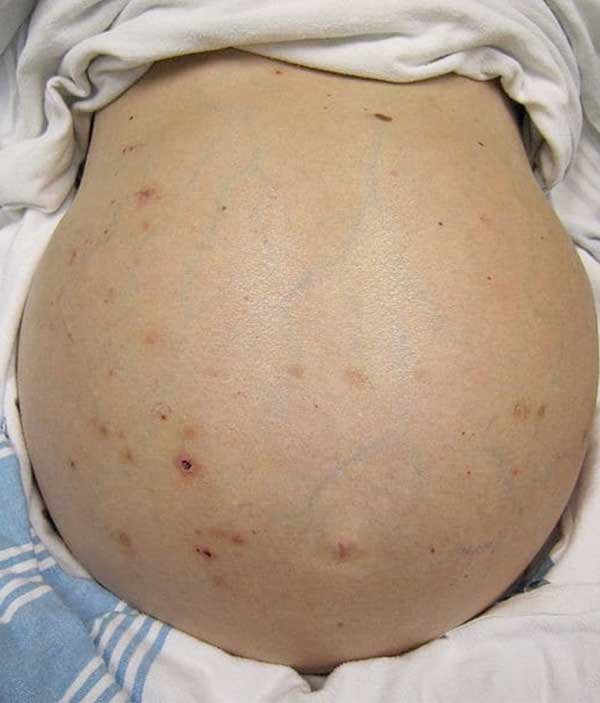
Symptoms of liver disease include swelling and pain in the abdomen.
Although several types of diseases can affect your liver, the symptoms you may experience will be similar. Read on for common signs that almost all liver patients have experienced at least once in their lives. Virtually all types of liver disease cause inflammation of the liver. Therefore, if you have liver disease, you may experience mild to severe abdominal pain. If your abdomen ever feels exceptionally painful to the touch, you should see a doctor right away. If your liver has become very swollen, swelling of the abdomen on the right side may also occur. You may even lose your appetite for the same reason.
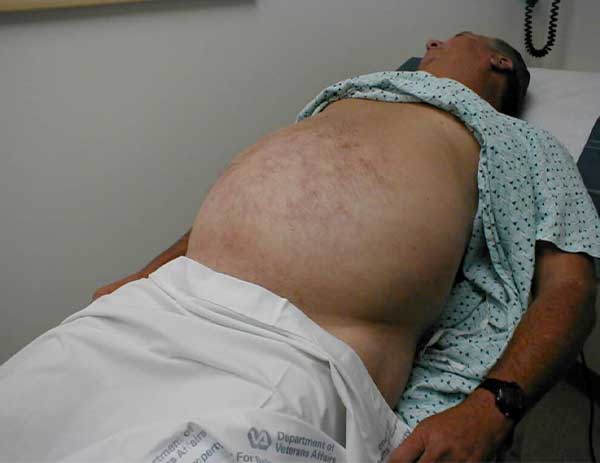
There can be many different conditions that can cause inflammation, including cirrhosis, hepatitis, and cancer. Many of these conditions alone can be fatal if not treated quickly. The inflammation itself can also be deadly, as your liver is no longer working and may begin to turn off. If you have reached the point where your liver is inflamed, the first thing you should do is go to the emergency room so doctors can determine the condition that is causing the inflammation. Once you are being treated, you will need to address your diet and make sure you are eating foods to keep your liver healthy.
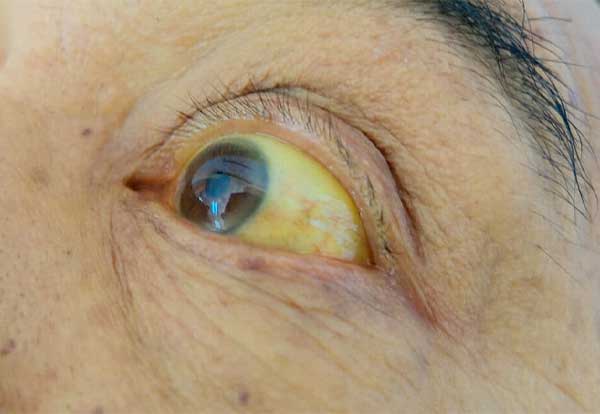
<!–page–>
Jaundice is the yellowing of the eyes and skin.
Have you ever noticed someone with a yellowish tinge where the whites of the eye should be? Your skin may also be yellow. Medically known as jaundice, this symptom usually occurs when the liver stops absorbing bilirubin. If the amount of bilirubin increases in the blood, then it can cause yellowing of the skin. Along with coloration, itchy skin problems can also occur in patients. That’s one of the most obvious symptoms when it comes to liver problems. Jaundice is not harmful in itself; The problem is the underlying condition that is causing jaundice. Think of jaundice as a symptom that alerts you to a problem.
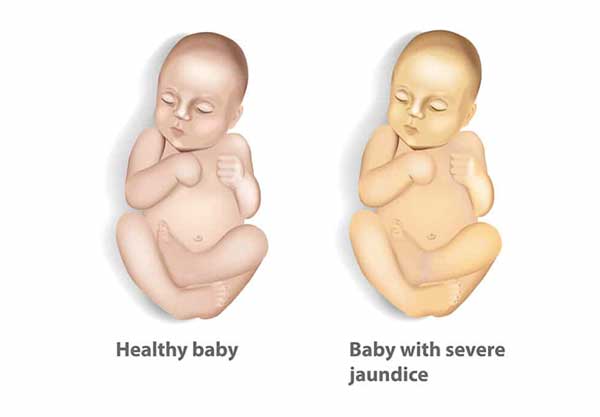
Infantile jaundice is a normal condition, especially in babies born before 38 weeks of pregnancy. The condition is caused by an immature liver that cannot remove excess bilirubin from the bloodstream. Newborns are usually screened for jaundice before being discharged from the hospital, but can develop days or weeks after birth. If you touch a baby’s nose and it turns yellow, the baby may have mild jaundice. Although the condition usually goes away on its own, complications can develop if jaundice is severe, especially if bilirubin passes into the brain. If a baby turns yellow, has a fever, arches his or her back or body, or has trouble feeding, he or she should be taken to a hospital right away.
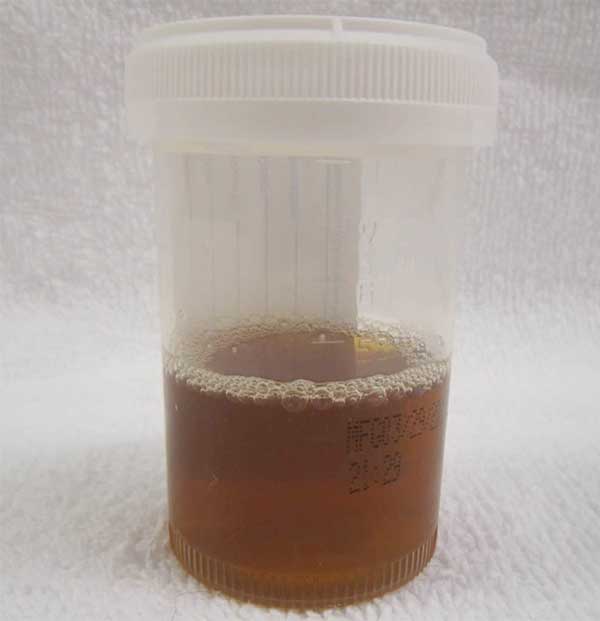
Dark urine and pale stools are a sign of concern.
Urine should be light green and yellowish. It may be evident in very well hydrated people when someone needs to drink more water. In addition, some foods, such as beets, can cause urine to turn red, purple, or another funky color. However, there is no need for alarm unless the urine turns brown. Why? That’s a symptom that there’s too much bilirubin in the blood. Brown urine may also indicate internal bleeding in the liver, which is a medical emergency. If you ever see brown urine, see your doctor for a liver function test. Prevention is better than regret.
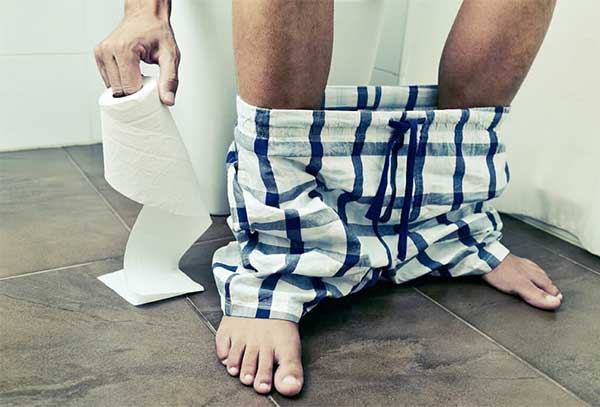
Another sign of concern that you can easily see on the toilet is if your stools are pale. Bile, the digestive juice produced by the liver, is dark in color and gives the stool a characteristic dark brown appearance. If your liver isn’t working properly, it won’t produce the right amount of bile. You may notice the change every time you have a bowel movement. Going to the emergency room because your poop isn’t the right color may sound a little alarmist, but it could be a symptom of liver problems. Also, keep in mind that liver problems can be difficult to detect until the damage is done.
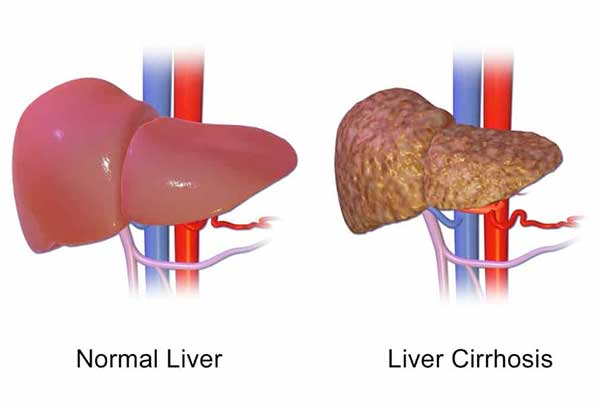
Diagnostic tests are used to detect liver problems.
Diagnostic tests are done to detect liver disease, determine what caused it, and monitor the condition of the organ. Early detection of liver disease is crucial because it often shows no signs of damage during the early stages of the disease. The liver is able to heal itself when faced with minor damage. However, if the bile duct is blocked or the liver is scarred, as in cirrhosis, the damage may be permanent. Early detection of liver disease allows the patient to take precautionary measures. Laboratory tests involve measuring the levels of bilirubin, proteins, and enzymes. If abnormal levels are detected, it usually indicates liver disease.
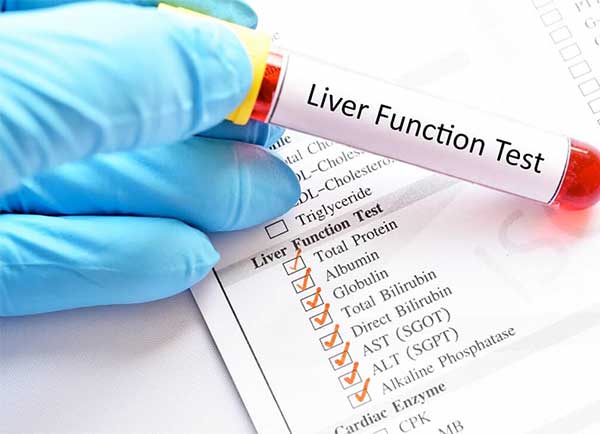
Laboratory tests for liver disease include the whom metabolic panel, which is usually part of a routine health check-up, a series of tests that help determine if the liver is working properly. This test is done by simply drawing blood and looking for markers such as albumin and bilirubin levels. If your doctor does not order an integral metabolic panel as part of your regular checkup, you may request one. You may be anxious that the doctor thinks you’re being paranoid and doesn’t trust the care they’re providing, but most doctors will be glad that their patients are taking so much responsibility for their own health.
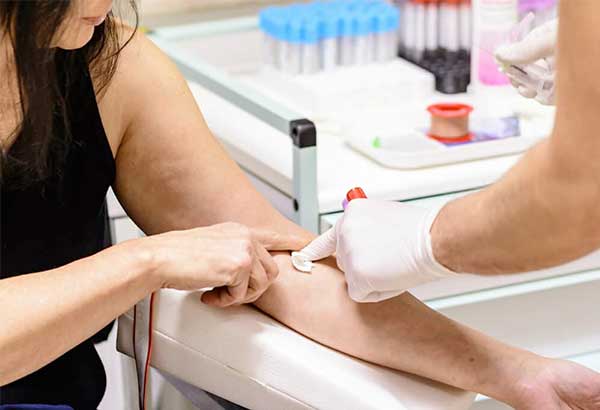
Doctors do a variety of tests when they check for hepatitis in the liver.
The doctor you see for your routine checkup will usually perform the following diagnostic procedure to check for hepatitis. An alkaline phosphatase test is done to check for bile duct blockage. If the bile ducts are blocked, this enzyme increases in amount. Bilirubin tests are done to measure the amount of bilirubin in the blood. Bilirubin imbalance indicates liver disease. Increased bilirubin levels may also indicate hemolysis. A direct bilirubin test may be done to measure conjugate bilirubin. High levels of conjugate bilirubin indicate liver disease. The albumin test is done to estimate the amount of albumin protein being made by the liver.
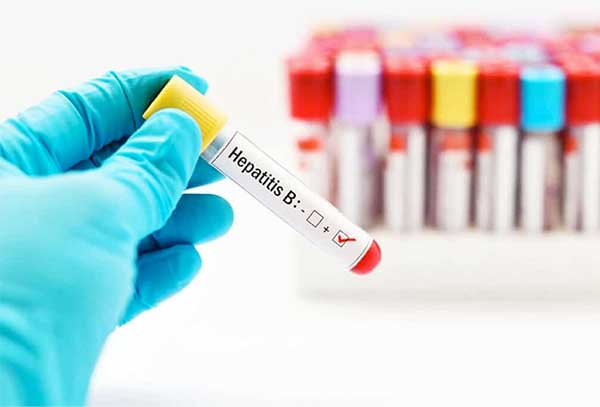
These tests are routine, but many people don’t do them because they don’t have regular checkups. While getting a checkup may seem like a waste of time, especially if you feel healthy and aren’t experiencing any problems, blood tests your doctor does can prevent serious complications in the future. Getting a simple test before a problem develops or identifying that problem before the damage becomes irreversible is one of the best things you can do to control your own health. Also, eating healthy and getting enough exercise can make sure you’re as healthy as possible.
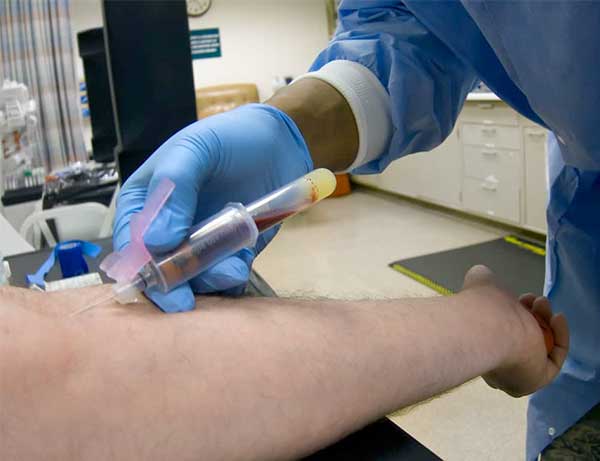
<!–page–>
Medical teams often perform a total protein test, a complete blood count test, and a test for elevated levels.
A protein test is done to measure the levels of all proteins in the blood. That includes antibodies useful for claiming infections. These are some of the main tests that can help the doctor determine the disease. Here are some other tests that can help a doctor determine how much damage the medical condition has caused. The complete blood count is done to count the number of red blood cells (RBCS), white blood cells (WBCS), and platelets. Tests for elevated levels of alpha-fetoprotein help indicate liver cancer. Acetaminophen tests are done when your doctor suspects narcotic related liver damage.
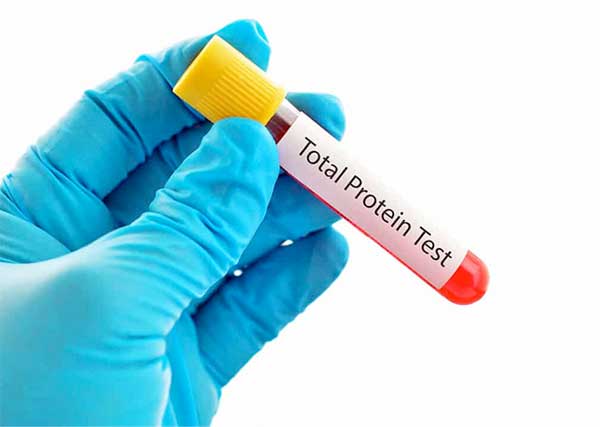
If you’re wondering why protein tests can tell if there’s a problem with your liver, keep in mind that it’s the liver that processes proteins, and even builds new a proteins from amino acids. If your protein counts are off, then there could be many different explanations, including your diet and problems with other organs. However, problems with protein counts may also indicate liver problems. The same applies to blood cell counts. All the systems and functions of your body are interdependent, so they will not function properly unless all other systems function properly. Problems with blood cells can often be related to liver problems.
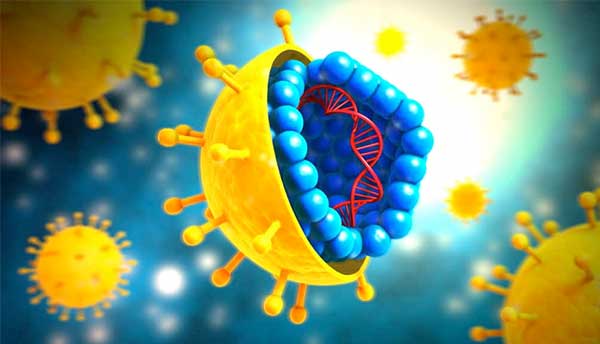
There are several causes of liver disease.
Numerous things can cause liver disease. This includes viral infections, in which the liver is affected by viruses and parasites. Viruses enter a person’s body through blood or semen, coming into close contact with an already infected person, or eating contaminated food or water. Hepatitis a, hepatitis b, and hepatitis c are the most common viral diseases affecting the liver. Severe liver diseases can be caused by cancers and tumors, such as liver adenoma, liver cancer, and bile duct cancer. Genetic abnormalities can lead to some diseases such as hemochromatosis, antitrypsin deficiency, and Wilson’s disease. If you know you have a family history of liver disease, you will want to be aware that you may be at increased risk.

People can get liver disease from drinking too much alcohol. In addition, the buildup of fat in the liver, herbal compounds, and prescription drugs can cause liver disease. To protect your liver, do not take medicine unless prescribed. Many people take over-the-counter medicines for minor ailments, such as trouble sleeping and menstrual cramps. However, you should minimize them as much as you can because, over time, they can damage your liver. While some alcohol is okay, excessive alcohol use can cause liver problems. Some liver diseases are caused by the immune system that attacks the liver. Examples of this include sclerosing cholangitis, biliary cholangitis, and autoimmune hepatitis. Ammonia imbalance can cripple the liver’s ability to process proteins.

You can work to prevent liver disease with a healthy diet and exercise.
There are specific precautionary measures that everyone can employ to decrease the chances of developing liver disease. Eating a healthy diet and exercising regularly keeps your weight under control and prevents obesity. That, in turn, can prevent fatty liver, which can lead to cirrhosis. When someone drinks too much alcohol, the liver can’t process it. As a result, scarring or swelling of the liver tissue may occur. It can also cause cirrhosis. Reducing alcohol also reduces the chances of liver disease. Doctors often suggest that men should have no more than two drinks a day, while women should only have one drink a day.

Not everyone has the same risk factors for liver disease. Some things can’t be controlled, like genetics. Making lifestyle changes necessary to promote liver health can be a challenge, especially for people who work in an office and spend a lot of time sitting. In addition, it can be a challenge for people who cannot afford foods low in sugar and low in chemicals such as preservatives and fertilizers. However, everyone can make changes that will help promote their long-term liver health. Remember that making changes now to avoid problems will prevent you from having to make massive changes, such as spending months in the hospital when problems develop and cause long-term damage.
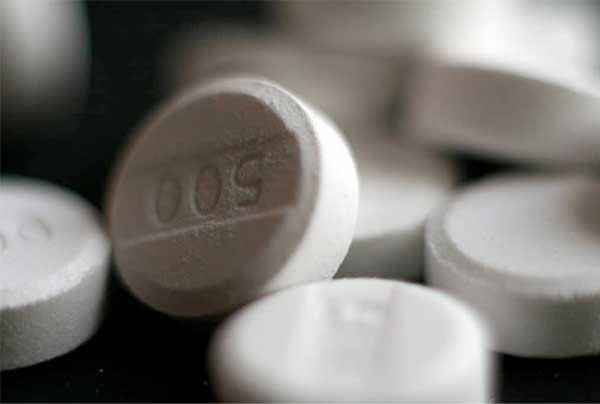
To optimize the health of your liver, it is best to avoid certain prescription medications and toxic substances.
Some prescription medications can damage the liver, especially those that contain a compound called acetaminophen. This compound can be found in common medicines such as cold medicines and pain relievers. Many women take acetaminophen every month to relieve menstrual cramps. People who deal with chronic headaches may take acetaminophen to help them control the pain. While taking some acetaminophen based pain relievers may occasionally be adequate, relying on this medicine can always be harmful to the liver. Also, even though acetaminophen isn’t as addictive as opioids or alcohol, you can become dependent on the drug if you use it too much.
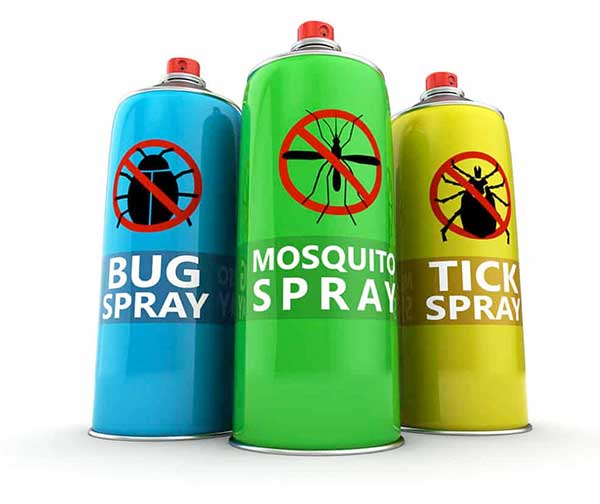
Some insecticides and cleaning products contain harmful chemicals that can severely affect your liver. Insecticides are commonly used when growing food commercially, so one way to avoid them is to buy as much organic food as possible. If you use insecticides at home to deal with infestations, try to find less toxic ways to get rid of cockroaches and other pests. Avoid aggressive cleaning products that contain chemicals such as ammonia. There are many cleaning products you can buy that do not have strong chemicals, and simple baking soda can be extremely effective for cleaner surfaces. Smoking also causes liver damage due to some additive compounds that cigarettes usually contain.
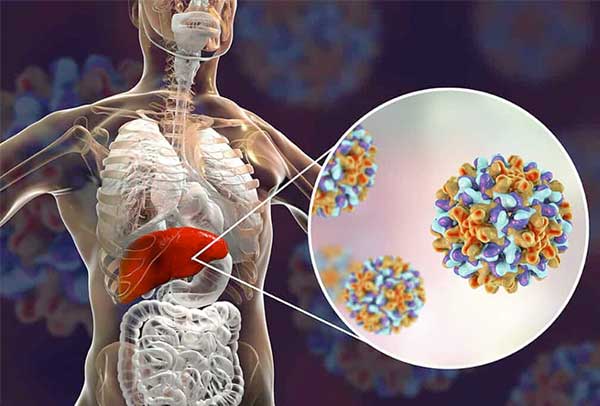
<!–page–>
Hepatitis prevention is possible with some safety measures.
Hepatitis is a viral disease that affects the liver. Hepatitis a can be contracted by eating or drinking contaminated food and water. If you visita place where there is an outbreak of hepatitis, you cannot avoid coming into contact with the disease. In that case, you should get vaccinated so you don’t get sick. You should also be very careful when visiting places prone to hepatitis outbreaks. Be sure to thoroughly wash all fresh produce and cook it instead of eating it raw to kill any hepatitis pathogens that may be living in it.
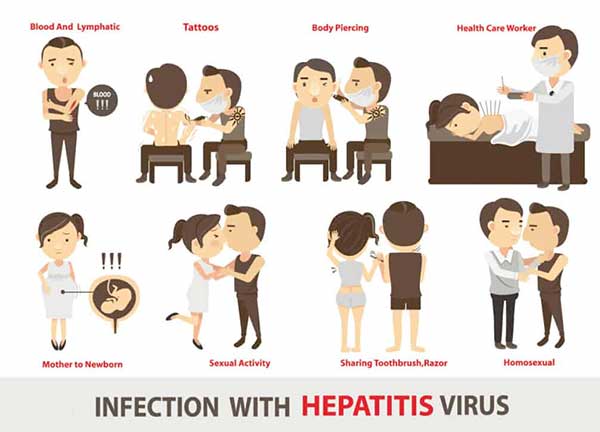
Hepatitis b and c can be spread through body fluids and blood. Personal items such as razors, needles, and toothbrushes should not be Shared between people. Doing so could contaminate an infected person’s blood, causing other people to contract hepatitis pathogens. Hepatitis b and c can also be sexually transmitted, so condoms should always be used during sex. It is not advisable to have unprotected sex with several partners. There is a hepatitis b vaccine that most babies get, but it can lose its potency over time. If you are at risk for hepatitis b, ask your doctor about getting boosters so you don’t get sick with the virus.
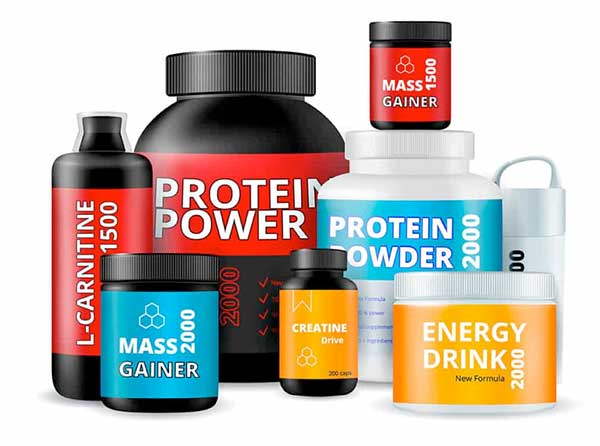
It is crucial to control the intake of supplements and herbs.
Nowadays, many people are very health conscious, and take many herbs and supplements because they think these products are totally beneficial and carry no risk of side effects. That idea could not be more of a myth. Traditional medicine, including herbs, may be helpful, but only because some herbs have medicinal properties. Some herbs should not be mixed because of these medicinal properties, as they can become toxic in combination. Many people who take herbs are unaware of which herbs should not be combined and may inadvertently become poisoned when they think they are becoming healthy.
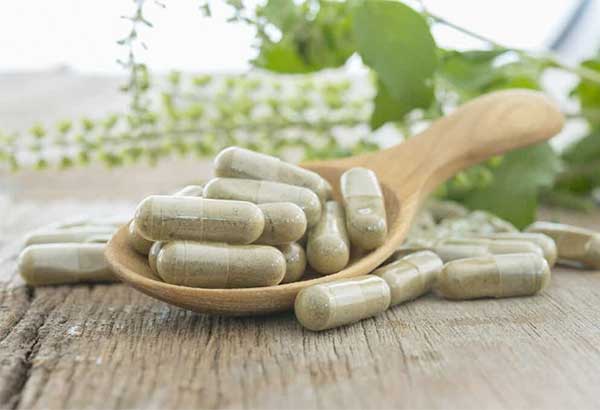
Some herbs such as chaparral, kava, semulus, husk, and ephedra can damage the liver, so avoid them at all costs. Some supplements and herbs are claimed to improve liver health, such as stone chanca, borututu bark, and milk thistle seed. However, there is no evidence to support these claims, so be careful to take them. Manufacturers who sell these products can claim to promote liver health because they know that health-conscious people will buy them. While products sold in the United States are subject to advertising laws that prohibit this unethical behavior, many people go online and buy these products from international distributors who are not bound by these advertising laws. Some of these can cause liver damage.

Treatment of liver disease may vary depending on the disease.
If you have been diagnosed with liver disease, there are several methods of treatment that your doctor may discuss with you. Treatment of liver disease depends on the type of disease and stage, and other surrounding factors. If you have hepatitis, your doctor will probably prescribe medications that address the particular type of hepatitis you have contracted. He or she may also recommend lifestyle changes, especially if you acquired it through unprotected sex or intravenous drug use. You want to make sure you don’t keep doing these things and therefore get other people infected.

In cases of non-alcoholic fatty liver disease, the doctor usually asks patients to lose weight through diet control and regular exercise because lifestyle alone is often the cause of this condition. Eliminating excess sugar, reaching a healthy weight and changing from a sedentary lifestyle to an active lifestyle can significantly change the prognosis of non-alcoholic fatty liver disease; Sometimes, these changes can be enough to reverse the condition and ultimately cure it. However, other liver diseases require qualified medical attention and treatment, especially if the disease has progressed so far that permanent damage has been caused.
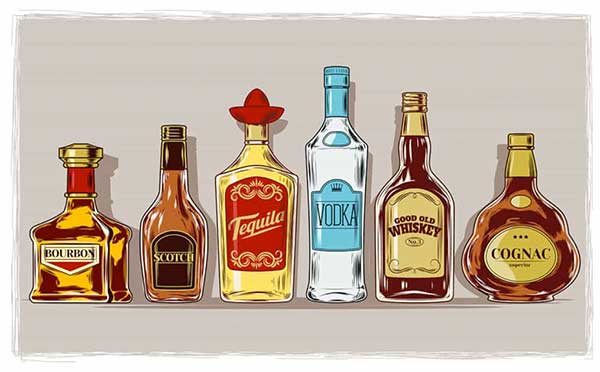
As a result of drinking too much for too long, you may need to take medicine to get stronger, or you’re your liver.
Cirrhosis of the liver can be treated with medications, but the underlying cause of cirrhosis is usually lifestyle. Lifestyle factors that can lead to cirrhosis include consumption of high sugar levels over an extended period of time, chronic dehydration, salt intake, and consumption of too many unhealthy fats. In addition, other factors that contribute to risk include not getting enough exercise or getting adequate nutrition. You may also have too much stress built into your daily life, and that excessive stress may contribute to liver dysfunction. In addition to taking medications that will help relieve cirrhosis, if your doctor diagnoses cirrhosis, you may also need to make lifestyle changes that prevent more problems from developing.

Image via freepikdoctors will advise the patient to stop drinking alcohol in case of alcoholic liver disease. They may also recommend taking certain prescription medications. For hepatitis, doctors suggest taking antiviral medications. Patients usually accept these medications to slow down the virus and prevent it from causing further liver damage. For autoimmune diseases, the doctor will give medications that suppress the activity of the immune system. Bile duct blockage can be treated with medications such as ursodiol. However, surgery may be required in severe cases, which involves opening blocked bile ducts. Genetic diseases of the liver are treated according to the type. For portal hypertension, medications to reduce blood pressure may also be used. These medicines prevent the veins in the stomach and esophagus from enlarging. If an infection is found, they may prescribe medications to treat it. Antibiotics are prescribed for bacterial infections.
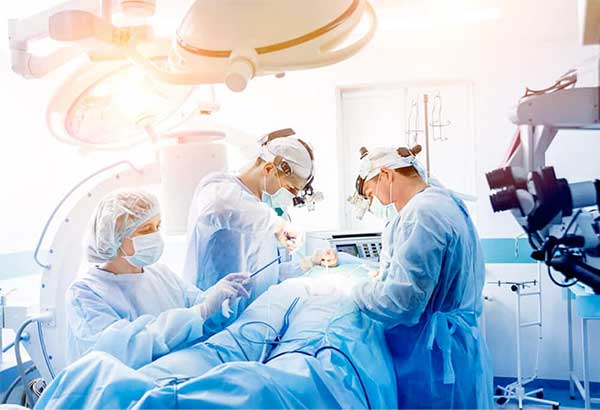
<!–page–>
You may need surgical procedures to address your liver problems.
Liver disease may cause the amassing of fluids in the abdomen, also known as ascites. For this, the doctor will recommend medicines to extract the liquid from the body. The patient may be advised to limit their intake of salt. If the amount of fluid present in the abdomen is quite large, then a tube or a needle might drain the fluid. The doctor can order some tests to be conducted on the liquid to detect infection. If the blood vessels of burst, patients may experience vomiting blood or blood with stool. In such cases, surgery or endoscopy is used to stop internal bleeding.
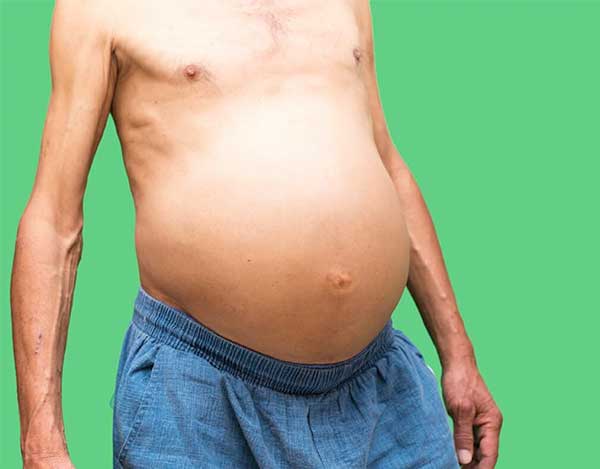
For liver cancer, the treatment procedure depends on the stage of the cancer. In the early stages, surgery is an option. Advanced stages may require chemotherapy and radiation therapy, which can have debilitating side effects and life-threatening complications. In some cases, a liver transplant may be needed. Liver transplants can be more successful than other organ transplants because only part of a liver is required, so there are often fewer complications. For progressive liver disease, a liver transplant may be the only viable option. Especially in the case of liver disease, one ounce of prevention is worth one pound of cure.

Try to avoid foods that contain too much salt.
Your liver can’t process some foods and drinks quickly. Therefore, you should limit your intake of these items to help reduce your risk of liver disease. What should you avoid? A diet high in sodium can cause scarring of the liver, also known as fibrosis. Fibrosis can progress to the stage of cirrhosis when it becomes a serious condition. As such, your salt intake should be limited. Processed foods are generally preserved with the help of salt and, as such, should be avoided. Deli meats and bacon contain a lot of salt. Canned vegetables are also preserved with the use of salt, so one should opt for fresh vegetables instead. Adding more salt to cooked foods should be avoided.
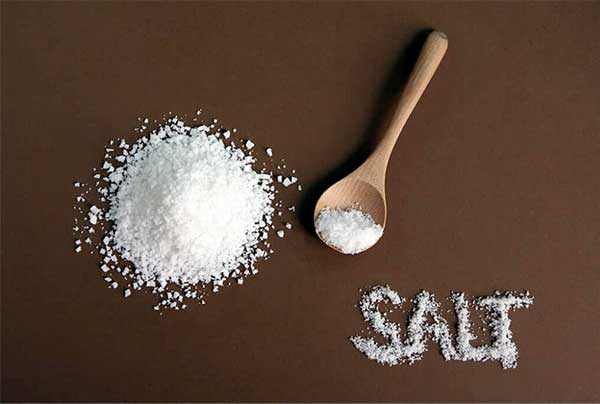
Many people are unaware of the amount of salt they are consuming because it is added to many foods. If you’re not aware of how much salt you’re eating, start reading nutrition labels and pay attention to sodium. The percentage of nutrition label is based on the maximum amount you should consume; If you eat more than 100%, you are paralyzing your body with too much salt. Many restaurants now include nutritional information on their meals on the menu or online, so check your favorite restaurant’s website to see how much salt is on your favorite plate. The results can convince you never to eat out again.

Alcohol has a significantly negative impact on liver function.
Alcohol is one of the main reasons liver damage occurs. If you drink alcohol every day, then it’s hard for your liver to get it out of your body properly. Alcohol builds up and can cause damage over time, leading to cirrhosis. So for that, you would have to limit your consumption of alcoholic beverages. Doctors do not recommend drinking more than four to five drinks in one session. People with a family history of liver disease, or those in high-risk groups, should limit their intake to two drinks a day for men and one drink a day for women.
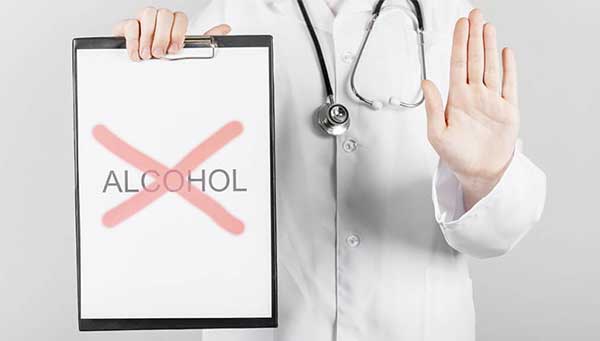
Some people think they need to drink a lot of alcohol to enjoy, so limiting alcohol will require significant lifestyle changes. If you are not sure what to do with your free time that does not involve alcohol, trying to enjoy your favorite non-alcoholic activities may not be productive. You may have to develop completely new hobbies and probably even find new friends to spend time with so you can start having a non-alcohol lifestyle. The effort you put in will be worth it because your health is something you can’t put a price on.

Too much Fried food and red meat can be harmful to the body and liver.
Say goodbye to these Fried foods if you want to protect your liver. Red meat is high in saturated fats and, as such, is not good for the liver. Therefore, red meat intake should be reduced to once or twice a week to maintain healthy liver function. Fried foods are high in calories and fat. They can cause obesity, which is one of the main risk factors for liver disease. Fat can build up around the liver, leading to fatty liver disease. Therefore, to keep your liver healthy, you should also avoid Fried foods as much as possible.
Hands holding big plate with different fresh farm vegetables. Autumn harvest and healthy organic food concept
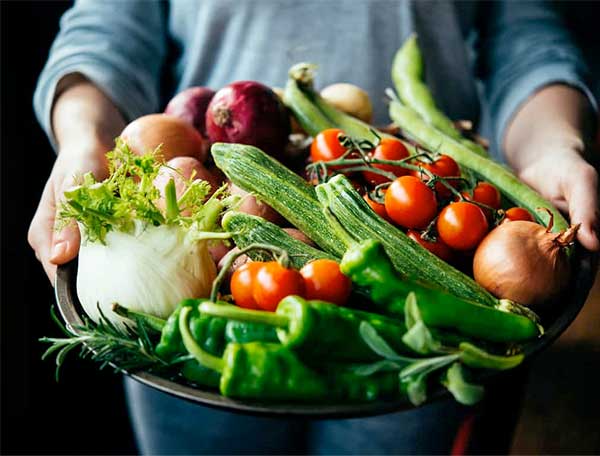
A vegetarian or pescetarian diet (one that includes fish) is one of the best ways to take care of your liver, as long as you’re not eating too much junk food. Getting protein from beans and bean products, such as tofu, and getting iron from green leafy vegetables can greatly help protect your liver from the saturated fat found in red meat. One of the pitfalls to avoid is too much carbohydrate. Many vegetarians eat too many carbs, and those carbs can affect the liver. Too much sugar, in particular, can lead to fatty liver disease.
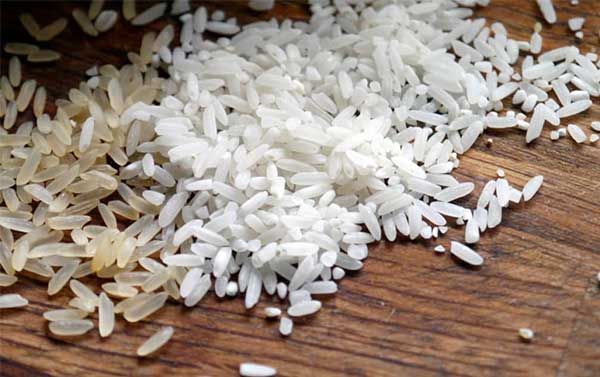
<!–page–>
White rice, pasta, bread and other fatty foods should be consumed in moderation.
White rice, pasta, and bread are made from processed flour. These do not contain as much fiber as whole grains. Therefore, they can increase blood sugar in the body, which can lead to liver disease. Instead of eating starchy white grains, opt for whole grains that do not significantly increase blood sugar. Whole grains have not been processed as much as their white counterparts, so they maintain much more of their nutritional profile. People who eat whole grains instead of white grains tend to be thinner, and maintaining ideal body weight is also essential for preventing liver disease.

Fatty foods are rich in saturated fats, which are quite dense and complicated. Therefore, if you eat in excess saturated fat, it cannot be processed by the liver. Your liver may become inflamed due to eating these foods in large amounts. This could cause scarring of the liver, also known as cirrhosis. Therefore, foods high in saturated fat, such as burgers and French fries, should be avoided asa precaution against liver disease. One healthy food trend that has become popular over the last decade is coconut oil because coconut oil is high in saturated fats, but this saturated fat is supposedly healthier. It seems that the jury is not yet on the health benefits of coconut oil, but the best approach is to apply a little of everything in moderation.

Packaged and processed snacks and sugar can cause a buildup of fat.
The liver has the vital function of turning sugar into fat. However, eating too much sugar can cause fat to build up around the liver, also known as fatty liver disease. Candy intake should be controlled, and sugar levels should be controlled to prevent liver disease. Like those commonly found in vending machines, packaged snacks are filled with fat, salt, and sugar. These are not good for the liver, as they are made from processed fat, salt and sugar in large amounts. One should limit the intake of such snacks and opt for healthier meals instead of protecting their liver.

Most of these packaged and processed foods have very little nutritional content, so eating them gives you nothing but empty calories. Avoiding empty calories is essential for losing weight and maintaining a healthy body weight, so you want to stay away from things like chips, candy, cakes, sodas and other processed foods. Instead, eat yogurt with added fruit for a snack. Eating an omelette with lots of vegetables instead of donuts for breakfast will protect your liver in two ways: you’ll avoid excess sugar and saturated fat in donuts, and you’ll work toward a healthy weight.

Many foods and drinks are beneficial to the liver, even coffee!
Some foods are drinks that can reduce the risk of liver disease. One such item is coffee, one of the favorite drinks of many people around the world. Scientists and nutritionists have been saying for years that coffee has high levels of antioxidants that can protect against age-related diseases, such as alzheimer’s disease. Some research has shown that coffee can protect against specific liver problems, such as fatty liver disease, and can even slow down liver scarring and cancer. People concerned about the health of their liver should consider adding coffee to their daily diet if they do not already drink it.

Coffee influences liver enzymes. An enzyme imbalance in the liver can cause liver disease, and coffee helps prevent the same. Drinking coffee increases the number of protective antioxidants and, therefore, can be beneficial for overall liver health. The buildup of fat in the liver can also be reduced by drinking coffee. However, you should be sure not to deny the health benefits of coffee by loading it with sugar. Drink it in black or cream, but don’t add sugar because sugar can completely derail the health of your liver. Also, avoid drinking more than two cups a day because caffeine can cause nervous system problems and agitate anxiety symptoms.
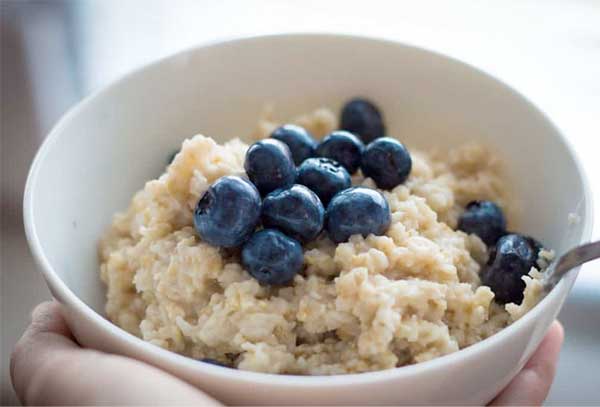
Oats are a healthy food choice for the liver.
Oats are rich in fiber. Fiber helps digest food. Eating oatmeal is an easy and effective way to add fiber to your diet. Fiber is a critical tool for digestion, and the specific fibers found in oats can be beneficial to the liver. Oats are also enriched with beta-glucans, which are biologically active and very beneficial to the liver. Beta-glucans are useful in combating obesity and diabetes. They also help reduce inflammation and improve immune system function. Tests on mice have shown that beta-glucans can help reduce the amount of fat in the liver.
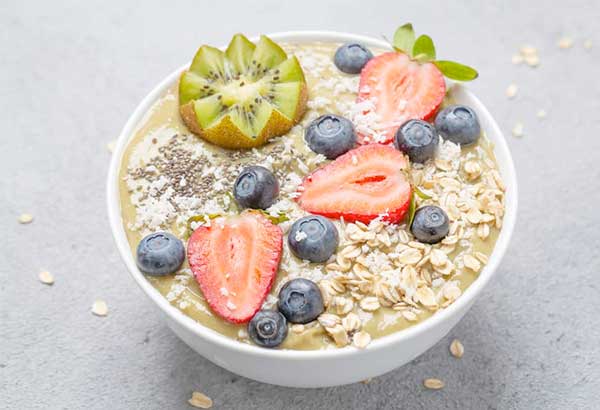
Instead of oatmeal packed with sugar, you should opt for whole oatmeal. Steel-cut oats are the healthiest because they have been minimally processed. They take longer to cook, but are also much richer in nutrients and have a more abundant taste. Sweeten your oats with fruit instead of adding sugar. Crushing a banana in a bowl of oats can add enough subtle sweetness so you don’t need extra sugar. Adding some berries will make oats even sweeter and tastier, while increasing the antioxidants and fibers that help you start the day right.
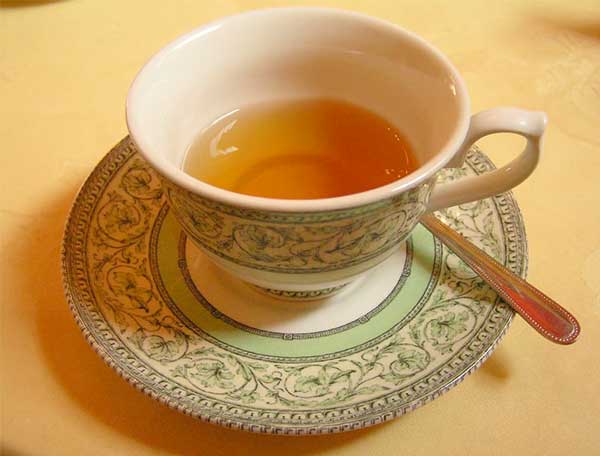
<!–page–>
Tea is one of the best drinks to consume.
The tea contains antioxidants, which doctors consider excellent for your health. Why? Because they fight the effects of oxidative stress caused by toxins and a stressful lifestyle. Studies show that drinking tea could be beneficial for the liver in particular. A study in Japan showed that drinking green tea affects serum levels. It decreases the serum concentration of triglycerides and total cholesterol. This helps in the prevention of cardiovascular diseases and liver disorders, including fatty liver disease. Green tea drinkers, especially those who drink green tea every day, are less likely to get liver cancer and develop other liver problems. However, some green tea supplements are harmful and should be used with caution.
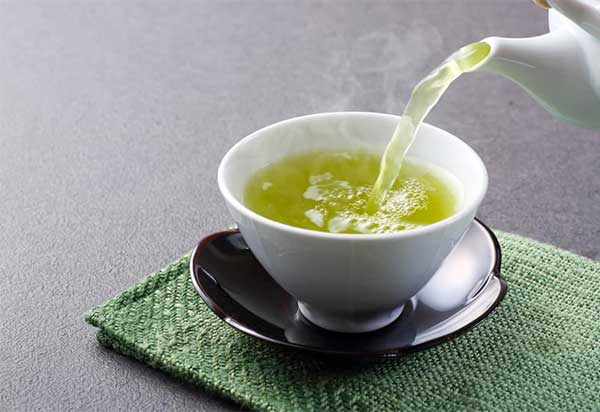
Although green tea is widely considered the healthiest type of tea, black tea extract is also beneficial for liver health. A high-fat diet can severely damage the liver, but black tea extracts can somehow reduce these effects. Many people drink herbal beverages labeled as “tea,” but there are only a few real types of tea, and they all come from the same plant. Herbal teas can be very beneficial to the liver, even though they are not tea. However, be careful what you add to the tea. Many people prefer to drink it with a lot of added sugar, which reverses any healthy benefits they would receive.

Grape and beet juice prevents inflammation in the liver.
Purple and red grapes contain resveratrol, which is a vegetable compound that is beneficial for the liver. Consuming grape juice can help prevent inflammation and increase levels of antioxidants in the body. In addition, the excellent news is that wine, especially red wine, also has high levels of resveratrol! However, be careful how much wine you drink. A glass in the evening can help you relax at the end of a long day while providing your liver with protective resveratrol, but more than one drink can contribute to fatty liver disease. In addition, although grape juice has this healthy compound, it is also very high in sugar. For best results, eat whole grapes and enjoy grape juice from time to time.
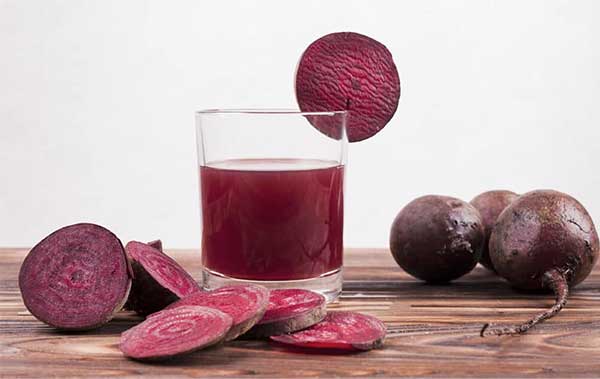
Beet juice contains antioxidants and nitrates, which can reverse the damage caused by inflammation. Animal studies have shown that consumption of beet juice reduces inflammation and releases enzymes that act as natural detoxification agents. Many people are not used to drinking beet juice, but it can be mixed with other liquids, such as freshly squeezed apple juice, to make the taste more appealing. In addition, many recipes use beets and can provide your liver with the protection that this nutritious vegetable offers. Adding beet to your diet once or twice a week may give you more energy. Your liver will filter out toxins better and allow you to make better use of the vitamins and minerals you consume.
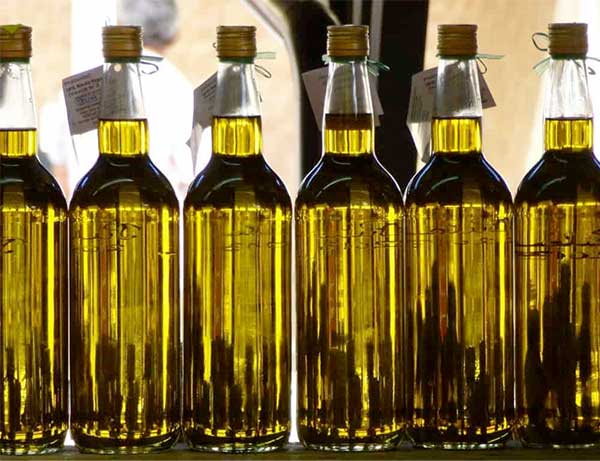
Nuts and olive oil improve enzyme levels in the liver.
Nuts are rich in fat-soluble vitamins, such as vitamin e, and healthy fats that your body needs to function properly. The fatty acids they contain, along with antioxidants, help reverse the effects of oxidative stress, including chronic inflammation that can prevent your liver from doing its job properly. Nuts can even help protect against fatty liver disease, so instead of taking a bag of chips, try chopping some nuts instead. Add peanut butter to your morning milkshakes (or to your oatmeal bowl for a creamy touch!), and swap some of your milk for walnuts, such as cashew milk, almond milk, and walnut milk.
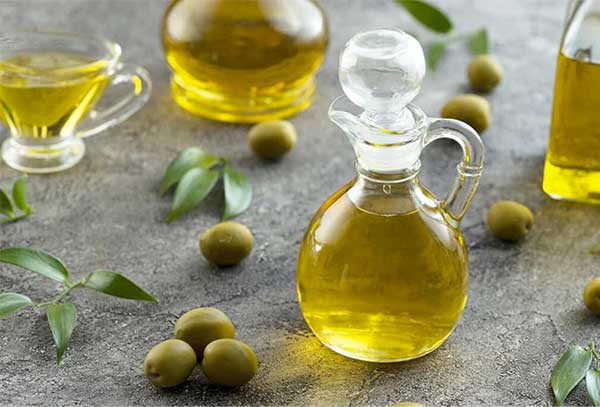
Liver fat and enzyme levels can be improved with olive oil consumption. While too much fat is bad for the liver and can contribute to the disease, daily olive oil intake can increase protein levels that will improve metabolism. Try changing salad dressing to olive oil and herbs, not for extra fat, and instead you’ll get healthy fats. Olive oil retains most of its nutrients when you eat cold, so don’t use it as cooking oil (its low smoke point can send your smoke alarm into a frenzy). You can also eat olives to get the benefit of this healthy fat.
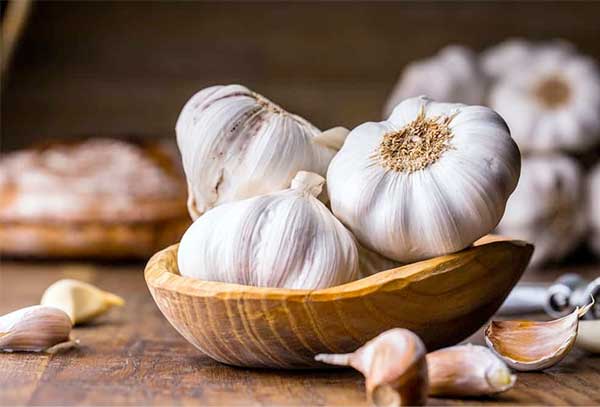
Garlic in your diet can help with the overall health of your liver.
Here is a common addition to many dishes. Adding garlic to your diet allows your body to take advantage of its nutritional content. By choosing to add garlic to your meals, you help stimulate your liver. Garlic consumption reduces body weight and fat content in people with liver disease non-alcoholic fat. It is enormously beneficial, as one contributing factor to non-alcoholic fatty liver disease is being overweight or obese. A simple addition to your diet can have a substantial impact on your health. Adding garlic to your food dishes will not only add some flavor, it will also help maintain a healthy liver.
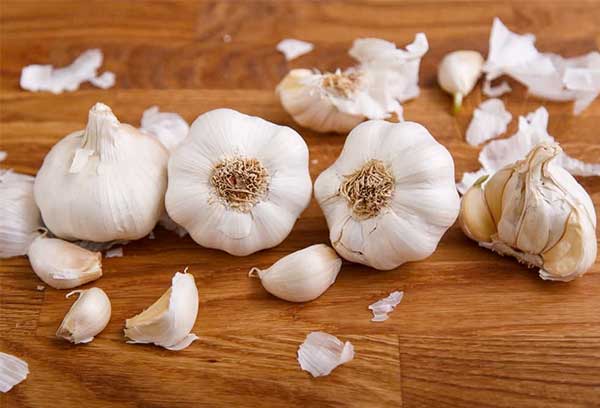
Raw garlic can cause stomach upset in some people because of the high level of fructose. Those on the fodmap diet to reduce inflammation from food sources may want to eat only cooked garlic, as this seems to break down fructans and reduce the incidence of inflammation. If you experience a mild burning sensation with garlic, try adding ginger, turmeric, or fennel to your plate, all of which are stomach calming and help with digestion. In addition, they are all tasty and work very well together to make delicious dishes! There are almost no kitchens that do not include garlic, so the world is your culinary oyster.
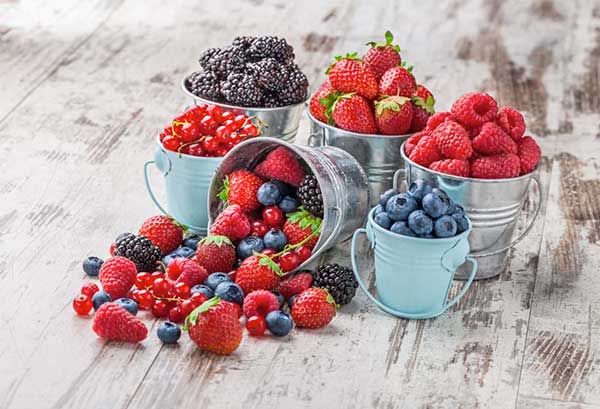
<!–page–>
The berries contain properties that help protect the liver.
There are many different types of berries, from blueberries, raspberries and blueberries. Most dark berries, such as those mentioned above, contain antioxidants called polyphenols. These antioxidants can help protect the liver from damage. Regular intake of berries three to four times a week, whichever type you choose, can boost your overall immune system and contribute to a healthier life. Blueberries help increase the response of immune cells and antioxidant enzymes. On the other hand, blueberry extract helps inhibit the growth of liver cancer cells. The types of antioxidants found in berries slow the development of lesions and fibrosis.
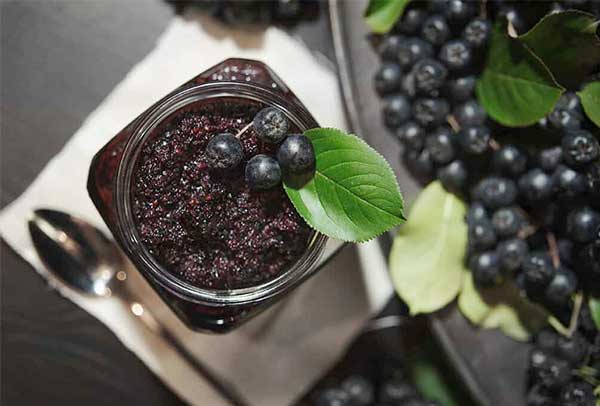
Try incorporating berries into your morning Greek yogurt, or take them in the middle of the afternoon as a healthy snack! Many types of berries are considered superfoods, so in addition to helping liver cells, they can also help with total regeneration of body cells and antioxidant work. Blueberries are always a great choice, but check out some less common berries like aronia berries, goji berries or even the humble wild currant for high levels of vitamin c and other nutrients vital to the healthiest possible liver. The berries can be easily added to a morning smoothie, dried in a snack mixture or even added to an ice cream.

The grapes offer a nutritional value that can provide liver protection.
Green, purple and red grapes are a popular quick snack among people of all ages. Grapes, grape juice, and grape seeds offer several nutritional benefits you won’t want to miss. The three items in the grape family are rich in antioxidants that can help protect your liver by reducing inflammation and preventing liver damage. Eating whole grapes with seeds is an easy way to add these compounds to your diet. A grape seed extract supplement may also provide some antioxidants, although it may not offer the same effects as consuming whole grapes. Try adding some grapes to your morning breakfast or incorporating them into your lunch.

If you don’t like fresh grapes or find them hard to use when they’re fresh, try them! Dried grapes retain most of the nutrients from fresh fruit. Look for raisins with little or no added sugar for the healthiest option. Despite typical jokes about “adult grape juice,” wine unfortunately does not contain the quality or quantity of nutrients in fresh or dried grapes. Furthermore, since we are talking about the liver, the metabolism of alcohol denies any benefits that nutrients may have on the liver. Also avoid most grape juices, as they are usually apple juice with artificial flavoring.
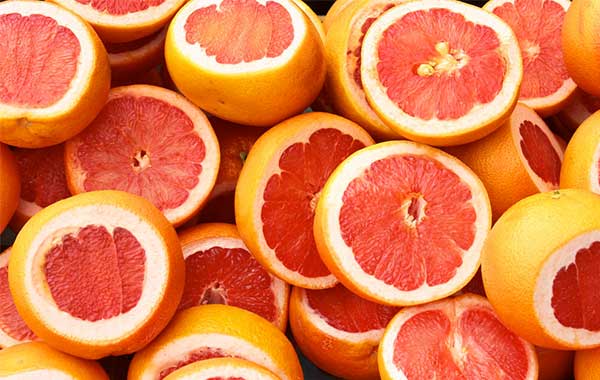
Grapefruit offers protective properties.
In addition to grapes, grape juice and grape seeds, grapefruit also has many liver-protective components. Grapefruit contains two primary antioxidants: naringin and naringenin. These two antioxidants help protect the liver from injury by reducing inflammation and also protect liver cells. Grapefruit compounds also help reduce the accumulation of fat in the liver and increase fatty burning enzymes. The antioxidants found in grapefruit can also reduce the development of hepatic fibrosis, a harmful condition in which excessive connective tissue builds up in the liver. Like other foods, grapefruit is a useful tool in the fight against non-alcoholic fatty liver disease.
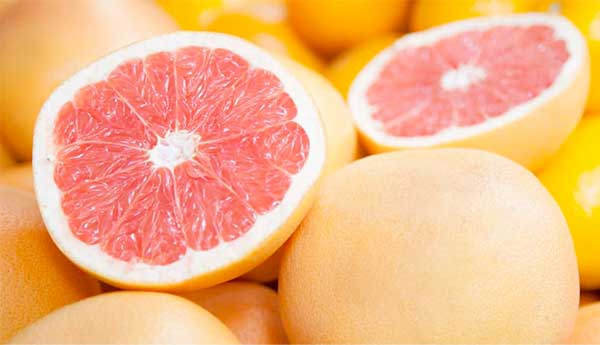
The main drawback of grapefruit juice and grapefruit is its broad and powerful impact on many prescription drugs. The enzyme cyp3a4 metabolizes many drugs. Grapefruit contains a chemical that blocks the effects of this enzyme, which means that the drugs will stay in your system longer, thus increasing the effects. For drugs such as selective serotonin reuptake inhibitors (ssris), this can lead to a dangerous condition known as serotonin syndrome. Check your list of medications before consuming grapefruit. If you’re lucky enough that all your medicines are safe, go crazy! Grapefruit is a healthy, low-calorie food full of important nutrients.
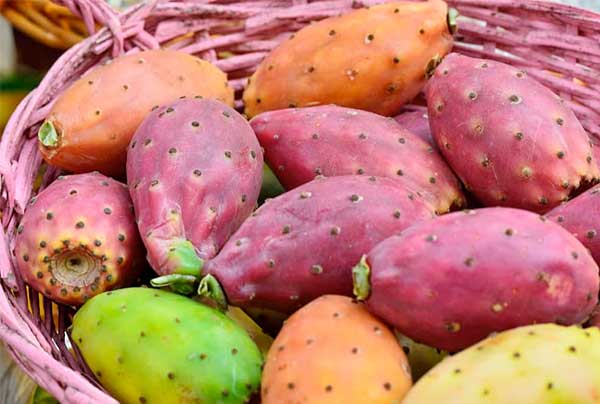
The components of the thorny pear have elements that help protect the liver.
The spiny pear is a popular type of edible cactus. Its fruits and juices are consumed more frequently. For a long time in traditional medicine as a treatment for ulcers, wounds and fatigue, thorny pears can help fight liver disease. The consumption of fruit and juices offers a reduction of inflammation in the liver. In addition, consumption of spiny strain extract helped normalize enzyme and cholesterol levels. While thorny pear extract offers many health benefits, you will receive the most health benefits from consuming pear juice. With all its positive effects on the liver, it can be beneficial to drink some pear fruit juice after an evening with friends.
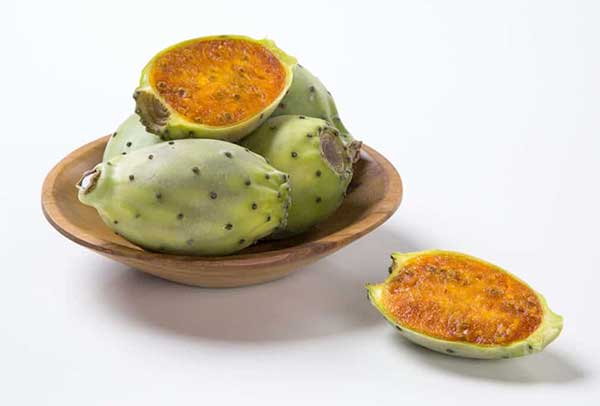
Despite looking like an exotic fruit, many varieties of thorny pear in the opuntia family are incredibly hardy plants and can be grown as far north as North Dakota. Fast-growing pallet cacti will shrink during the winter, but will recover in the spring, producing flowers and fruits in just a couple of years of growth. You can prepare your own fresh pear fruit by carefully peeling the bark of the ripe pink fruits. Be careful to remove the skin to avoid any small irritating hair throughout the skin. The fruit is often compared to watermelon in terms of flavor.
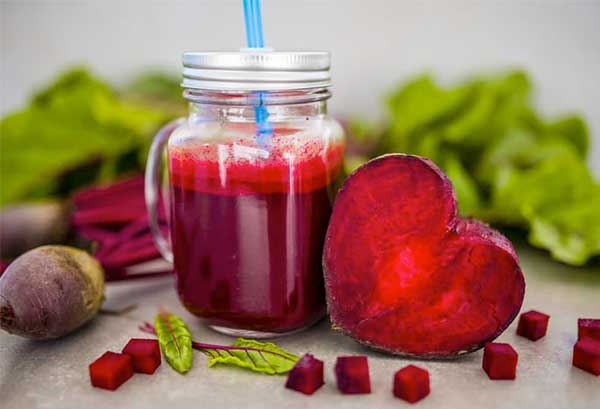
<!–page–>
Beet juice is full of nutrients that contribute to the health of your liver.
Beet juice is a source of nitrates and antioxidants called betalaines, which benefit heart health and liver health. Nitrates and antioxidants reduce oxidative damage and inflammation in the liver. At the same time, nitrates and antioxidants increase natural detoxification enzymes. While it is reasonable to assume that eating beet itself would have similar health effects, the nutritional content is maximised by consuming beet juice. You can buy beet juice at the store, or you can choose beet juice yourself. Either way, the benefits that beet juice provides are not the ones you want to miss.
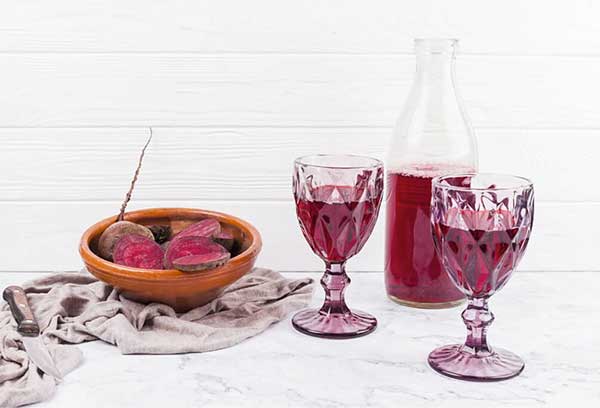
If you’re wondering what to do with the root itself, beets pickles are an old-fashioned but delicious choice! You can find them at most grocery stores or make them yourself. With a sweeter and spicy brine than dill pickles, beets pickles are an absolute delight and have the benefits of both beets and pickled foods. If your liver needs a hangover cure, beets pickles are an excellent remedy, with brine salt restoring valuable electrolytes. In contrast, the beets themselves help detoxify the liver. If you follow the rainbow diet, beets are an invaluable source of rich purple, hard to find elsewhere.
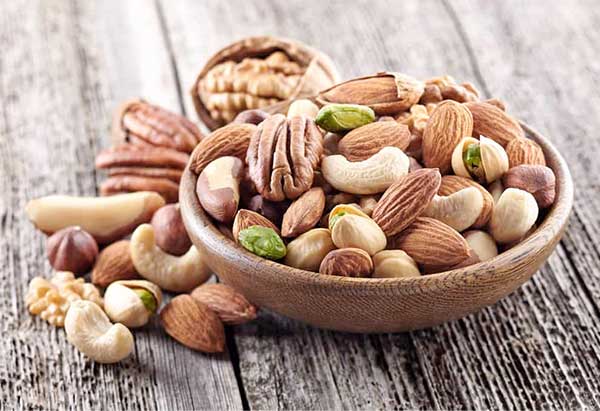
Nuts have many health benefits.
Eating nuts can be an easy way to keep your liver healthy. Nuts are high in fat and nutrients, including the antioxidant vitamin e and beneficial plant compounds. Nuts generally contain unsaturated fatty acids. This composition is responsible for several health benefits for both the heart and liver. Eating nuts helps improve natural liver enzyme levels. Those who incorporate nuts into their daily diet have a lower risk of developing non-alcoholic fatty liver disease. Compounds in nuts also reduce inflammation and oxidative stress. Eating a handful of walnuts or almonds each day can help maintain the health of your liver.
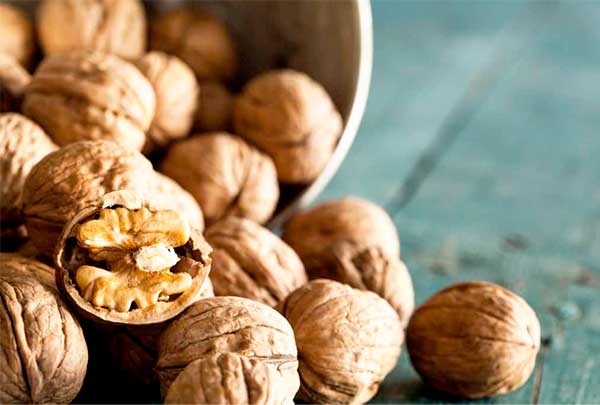
Walnuts are the most valuable in terms of reducing the incidence of fatty liver disease. Did you know that nuts are also one of the easiest and cheapest nuts to find, making them an ideal choice for your diet? They can be incorporated into salty and sweet dishes, making them natural companions to foods as diverse as green beans and chocolate brownies. One thing to keep in mind with nuts is that they are rich in oxalates, which makes them stones for anyone who has problems with kidney stones. If that’s not a problem for you, walnuts are an ideal choice for chopping or topping!
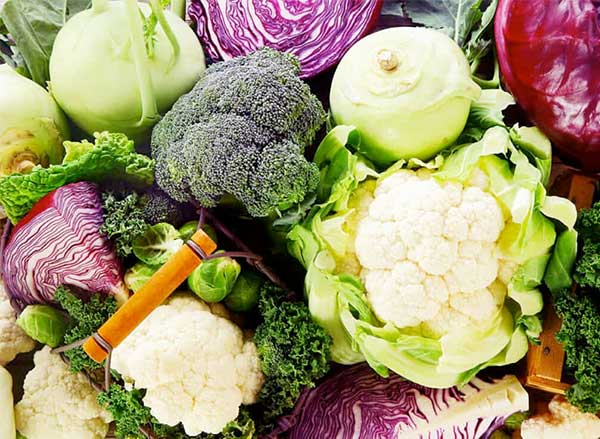
Cruciferous vegetables for victory!
Cruciferous vegetables make up a family of nutritional powers with a distinctive flavor that includes Brussels sprouts, broccoli and vegetables such as mustard leaves. Their bitterness is a hallmark of the family, leading some to dislike them. However, they can be prepared in many different ways that accentuate and complement, or even completely hide, bitterness. Even if you’ve been discouraged in the past, the health benefits of cruciferous vegetables are so great that you should consider giving them another try. There are dishes like the Vietnamese fish sauce with roasted Brussels sprouts that are gourmet dishes that are as healthy as they are unique and delicious.
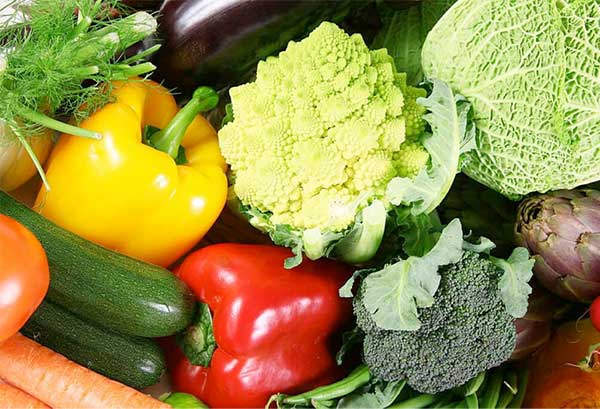
Studies have found that compounds in broccoli and Brussels sprouts, specifically, increase amounts of a vital detoxification enzyme in the liver. They also provided protection against damage to cells throughout the liver. For Brussels sprouts, this effect remained just as powerful even when cooking vegetables, an essential factor since they are never eaten raw. Studies in rats have found that compounds of Brussels sprouts prevented liver disease, including fatty liver disease. Broccoli breakout extract helped increase beneficial enzymes in rat livers and reduce oxidative stress in liver cells. These results are auspicious for human health!
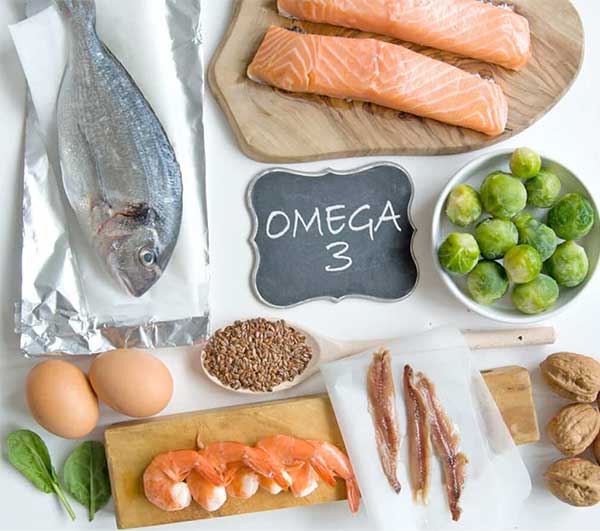
Put oily fish on your weekly menu.
Fatty fish such as salmon, including an essential nutrient: omega-3 fatty acids. The nutrient, which comprises a group of beneficial fatty acids, has been found to reduce inflammation and is associated with a lower risk of cardiovascular and heart disease. New studies are finding that omega-3 fatty acids are also beneficial to the liver by fighting inflammation and maintaining healthy insulin levels. There is also some evidence that omega-3 fatty acids, despite being themselves fats, help prevent the buildup of fat in the liver, reducing the risk of fatty liver disease. Time to go out for sushi!
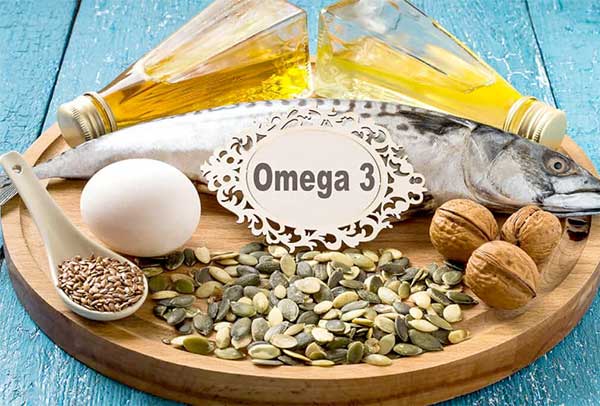
Interestingly, while omega-3 fatty acids are beneficial to the liver, related omega-6 fatty acids contribute to the risk of liver disease. These fatty acids are found in many vegetable oils and are consumed in excess in most American diets. Nutritionists recommend keeping the ratio of omega-6 fatty acids to omega-3 fatty acids consumed low, with omega-3 fatty acids comprising most of the fats consumed. Common vegetable oils such as canola, corn, vegetables and others are added to many foods, so read those labels carefully and be sure to include lots of fatty fish caught in the wild in your balanced diet.
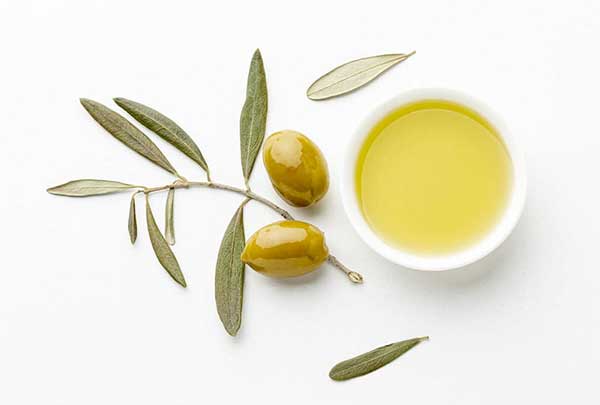
<!–page–>
Olives and olive oil are healthy for you.
Many people have heard of the Mediterranean diet and its effects on the cardiovascular system, including lowering blood pressure and reducing the risk of heart disease. However, what is less known is that one of the main foods in the Mediterranean diet, olive oil, is extremely beneficial to the liver. A small study of people with fatty liver disease found that just one teaspoon of olive oil a day reduced their liver fat levels and improved the number of healthy enzymes. Although not everyone loves the taste of olives, they have nutritional benefits similar to oil.
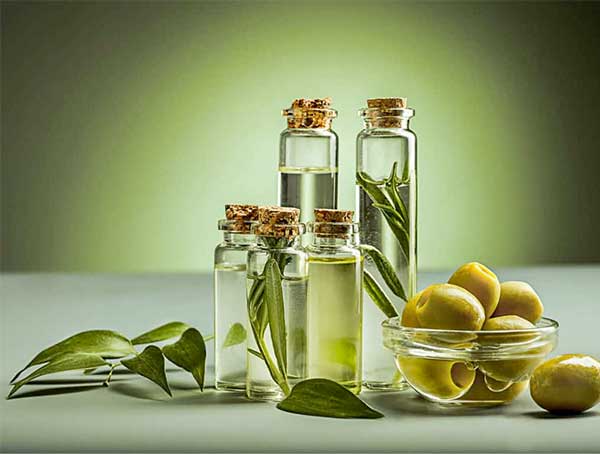
Even a study of healthy adults without fatty liver disease found that consuming a small amount of olive oil a day had beneficial effects on the liver. How? Increased blood flow, less fat accumulation and improved insulin sensitivity, which is a protective factor against the development of diabetes. Since the accumulation of fat in the liver is the first important stage of liver disease, anything that can prevent the accumulation of fat is incredibly valuable in the struggle to maintain a healthy liver. Even if you don’t cook much, it’s easy (and delicious) to have fresh bread dipped in olive oil with garlic, salt and pepper.
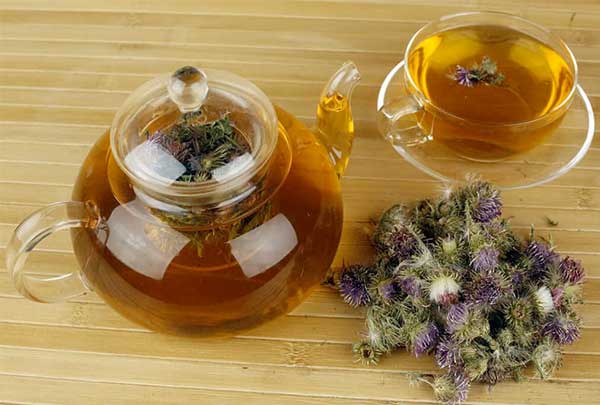
Have you ever drunk thistle tea?
When someone is tragically poisoned by eating a destructive angel, or amanita bisporigera, a fungus, one of the main organs affected is the liver. Full symptoms of poisoning can take days to develop, and unfortunately, that often means that permanent liver damage has had time to develop. The toxins in the fungi destroy the liver cells, making the organ non-functional and often requiring a transplant. Even those who survive the poisoning have to live with permanent liver damage or follow-up care after the transplant. Fortunately, hospitals have discovered that a common weed has life-saving potential in these cases: milk thistle.
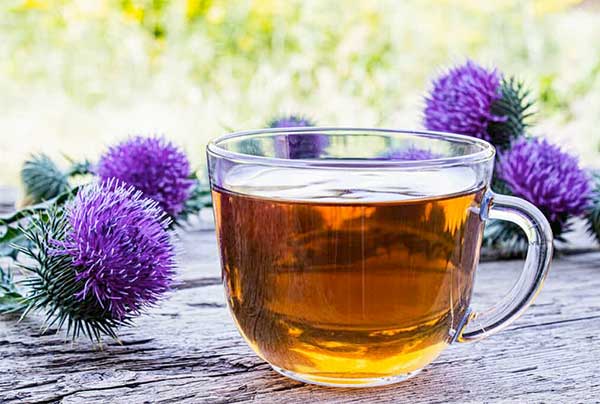
If a simple herb is powerful enough to help save your liver from nature’s deadliest fungus, imagine what a simple tea can do for a healthy liver! Mactearic thistle works by dramatically increasing the production of glutathione, which is often referred to as the mother of all antioxidants. Milk thistle also prevents the depletion and breakdown of glutathione, making it more available to your body. The highest levels of glutathione are found in the liver, making ita vital component for liver health. In addition to mushroom poisoning, milk thistle is also used to treat hepatitis and liver cirrhosis caused by alcoholism.
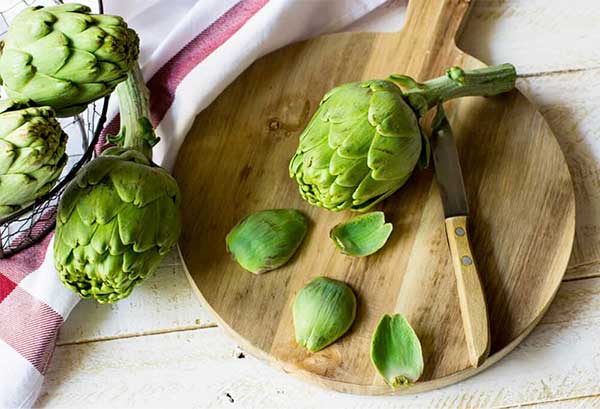
Take artichoke leaves the next time you eat.
When we think of artichokes, we usually think of the bud or the heart. However, people across Europe tend to eat the leaves, especially in the Mediterranean. In addition to being a tasty green, there is increasing evidence that artichoke leaves are beneficial for maintaining liver health. The leaves contain several compounds that increase bile production, which helps detoxification and protects the liver by increasing healthy enzymes. Artichoke leaf also helps maintain healthy levels of cholesterol in the blood, which benefits the cardiovascular system and the liver. Adding artichoke leaves to a salad, soup or even a vegetable smoothie will give you nutritional potency.
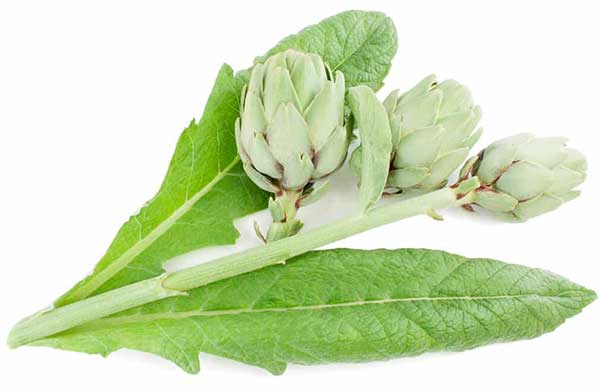
One of the two most active compounds in artichoke leaves is silymarina, which also shares with milk thistle the miraculous treatment for severe fungal poisoning. This chemical works to protect the liver from damage through a combination of antioxidants and enzyme enhancing effects. Artichoke leaves also contain cynarin, an important chemical that increases the production of bile in the liver. Bile works by binding toxins and allowing them to be processed and removed from the body through the liver. A liver that produces a healthy amount of bile works much better and detoxifies the body much more efficiently.
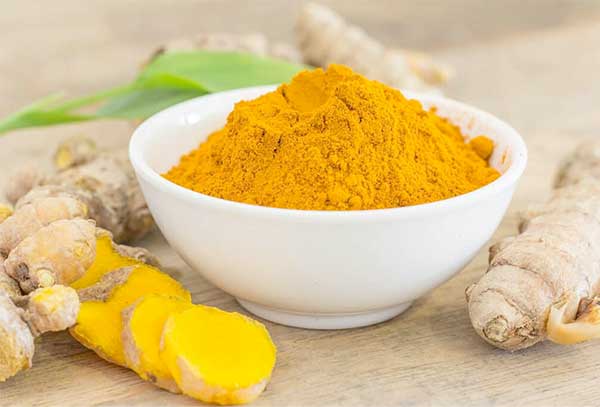
Sprinkle turmeric on your plate.
Have you ever come across a middle eastern or Indian dish that had an earthy aroma and a beautiful, rich golden color? The chef probably seasoned it with turmeric (especially if it was too cheap to contain saffron!) Turmeric, a popular spice in much of the world, is also medically essential and has numerous positive effects on the liver. You can find turmeric in most grocery stores in whole root form. In addition, you can buy it as a dried spice powder, or even as dry teas. It is a warm and abundant flavor that combines very well with ginger, another important and tasty food that increases the liver.
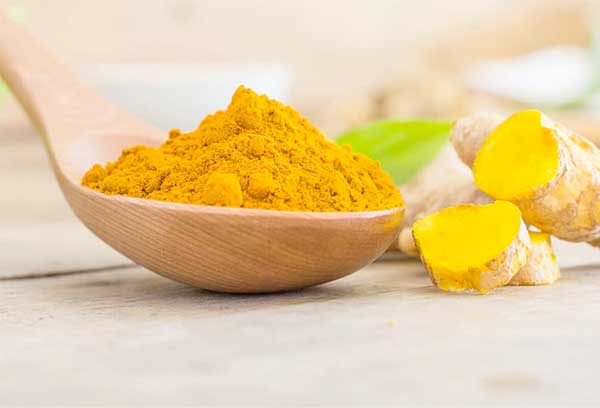
Turmeric is an extremely potent antioxidant, meaning it can bind free radicals and prevent the cellular damage they are known to cause. There is preliminary evidence that the antioxidant effects of turmeric may even reduce the risk of liver cancer. A study on cattle found that turmeric protected cows from stress damage related to fatty liver disease. The effects of turmeric seem to be even stronger when combined with green tea, which sounds like a nice cup of tea to drink. Additional studies have found that turmeric can protect the endoplasmic reticulum of the liver from changes, reducing the overall risk of liver disease.

<!–page–>
Dandelion roots can help protect liver health.
When the union army blocked the confederate army during the American civil war, they were unable to get coffee for their soldiers. He resorted to an old popular solution: toast dandelion roots and use them as a coffee substitute. While it does not taste exactly like coffee, the solution similar to dark tea has a bitter and warm taste that also has a nutritional touch. If you have a lawn chemical-free patio, you can even look for dandelion roots yourself, as they are a very common plant and easy to identify. Dandelion leaves and flower heads are also edible, making it a useful and undervalued herb.

A Korean study found that consumption of dandelion root helped prevent liver damage from both alcohol and other toxic chemicals. Like many of the other items on this list, dandelion root is rich in antioxidants, meaning it binds to free radicals in the body, which can cause serious damage to cells, including the development of cancer. Another study found that even when fed a high-lipid diet, rabbits eating dandelion root had a healthier lipid profile and higher levels of antioxidants. There is preliminary research that dandelion root also helps arthritis, so don’t go for the next dandelion patch!
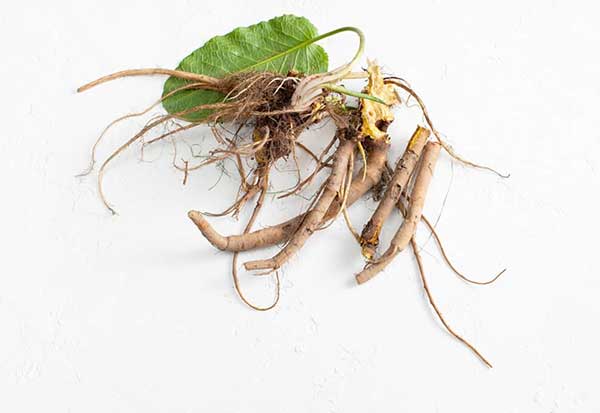
Don’t forget to test the root of the spring.
Another common weed root is the spring. Many types of wharves become wild throughout the United States, including the giant wharf, which most people know for its giant and spiny seeds, often called roosters. However, the roots of the medical value dock are limited to those of the yellow dock plant, rumex crispus, which is native to Europe and Asia. Commonly known as curly dock, the roots of this plant have countless benefits for both the lymphatic and the liver. In addition to being able to purchase whole dried roots, you can also find prefabricated teas, either made entirely from yellow spring root or included.
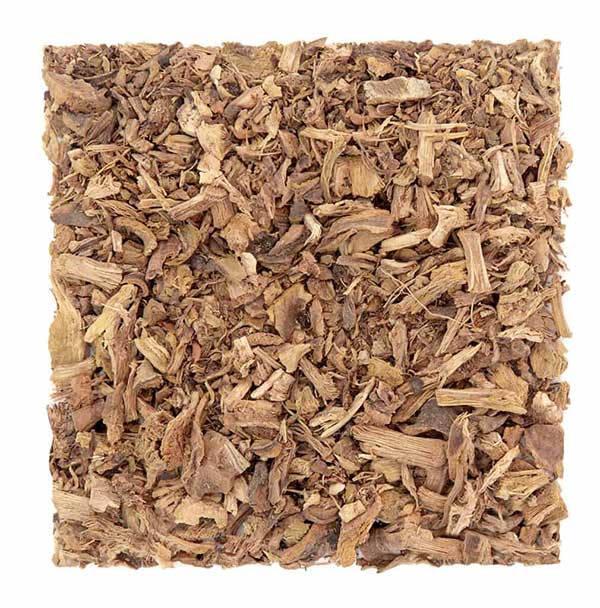
The yellow dock’s powerful roots include anthraquinones, a potent compound that helps control the flow of digestion and prevent constipation. It helps to eliminate waste from the body more efficiently. The yellow root of the spring is also diuretic. That means it increases the frequency of urination by removing more water and toxins from the body. Make sure you stay hydrated when you consume the yellow spring, as it greatly USES your body’s water for several of its mechanisms of action. Another critical effect of the yellow dock root is increased mucus secretion in the colon. In turn, it improves overall colon health and waste disposal.
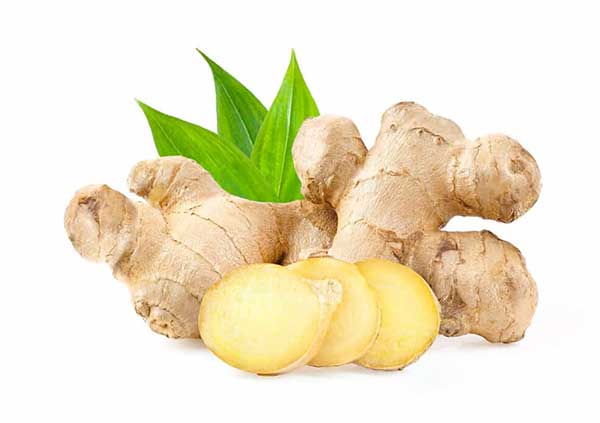
Eat recipes with ginger and you can protect your liver longer.
Ginger is present in the cuisine of countless cultures ranging from German ginger bread to Chinese ginger chicken. Ginger has long been used to prevent motion sickness, and ginger chewables are widely available at airports and rest stops for this purpose only. However, the benefits of ginger go far beyond its anti-nausea properties and its delicious taste. Experts noted that ginger has several anti-inflammatory compounds. They have a profound effect on the liver as well as the rest of the body. Two of the critical chemical components of ginger, gingerol and shogaol, have significant liver effects that make it an essential part of the diet.
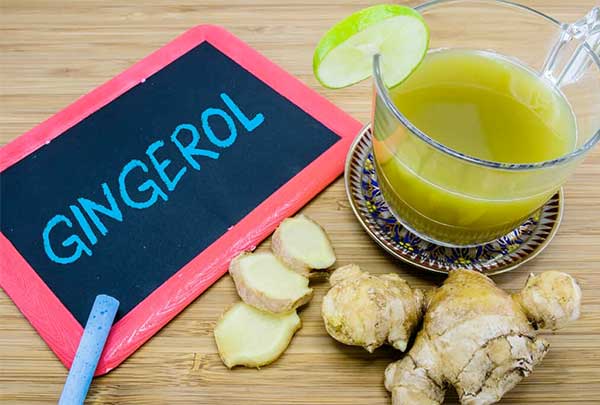
Gingerol and shogaol may reduce chemicals that cause inflammation, including prostaglandins and cytokines. Cytokines are a part of the immune system that deals with allergies and the body’s defense against infectious agents. If either is too active, the body’s defense system can turn on itself in the form of autoimmune problems and inflammation. Reduced levels of cytokines have a positive effect on both insulin sensitivity and reduced levels of fibrosis in the liver. Because doctors link these two factors to the risk of fatty liver disease, ginger may play a role in reducing risk.

She eats eggs for breakfast.
Choline is a vital nutrient that performs several important functions throughout the body. While it can be obtained through supplements, it is always best to get as many vitamins and nutrients as possible through food. They often contain accompanying enzymes that help your body get maximum value and absorption. For the hill, a fantastic choice for a natural source are eggs. Eggs are easy to find, very cheap and a great source of protein and trace nutrients, including choline. While eggs were once a cause for concern about cholesterol, experts now consider them a healthy source of protein.
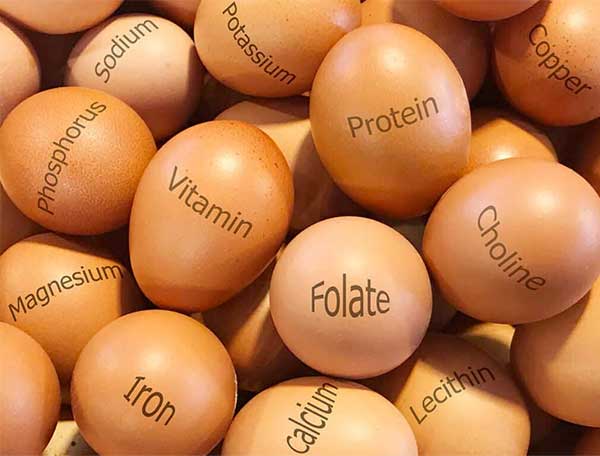
Choline is a fatty component, but interestingly, its most significant impact on the liver is to prevent the accumulation of fat in the liver, which causes non-alcoholic fatty liver disease. Chlorine also helps in the movement of two essential fats, cholesterol and triglycerides, away from the liver to other organs, where they can be much more beneficial as energy. Choline also helps prevent the buildup of toxic fats in the liver, which can hinder its ability to process and break down toxins in the body. Choline also has the added benefit of helping the body recover from exercise, so consider some eggs as an after-workout snack!
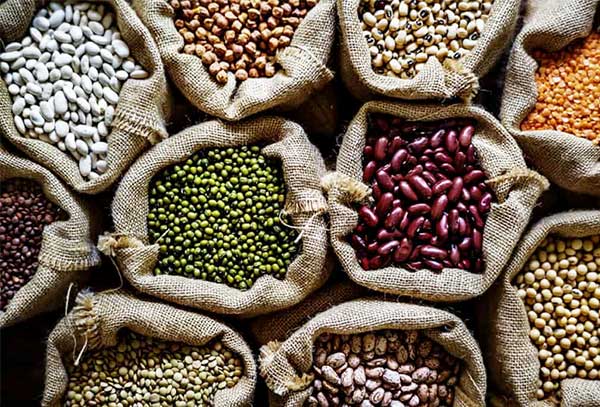
<!–page–>
Legumes are excellent for the health of your liver.
These are one of the healthiest, and often cheapest per pound foods you can buy. Legumes are any seed of members of the pea family and include peas, beans, lentils, chickpeas, soybeans, and peanuts. Did you know that legumes are rich in protein and fiber? They are low in fat and full of essential nutrients. They are also extremely beneficial to the liver because of their relatively high amounts of molybdenum, a trace of a vital nutrient and a metal that helps the liver successfully and efficiently remove toxins from the body. You can cook legumes in many different ways. It’s almost impossible not to find a dish that works in your diet.
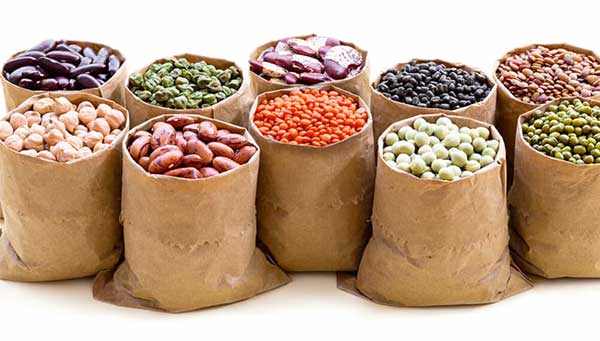
While you may have last heard of molybdenum in chemistry class, where it has periodic table number 42, it plays a vital role in the functioning of the human body. Despite being a metal, our bodies need molybdenum to help our liver function. The trace metal, found mainly in legumes and organ meat, activates the enzymes our liver needs to process and eliminate toxins. Specifically, it targets harmful sulfites that can build up in our bodies. These compounds are toxic, so we must eat at least some molybdenum for our livers to function smoothly!

Turkey is not just for Thanksgiving.
Another trace of nutrients and non-metallic that our body, and especially our livers and thyroid, needs is selenium. In number 34 of the period table, this element is vital in the fight against oxidation within the body. Oxidative stress and damage cause inflammation and changes in cells up to and including the development of cancer. Selenium is an essential component for two of the enzymes that fight this harmful oxidation. Studies have found that people with hepatitis have significantly less selenium in their bodies, proving that a healthy liver requires it. Diseased livers tend to lack it in normal amounts.

An important source of this trace mineral is the humble Thanksgiving Turkey! Its meat is relatively high in selenium, while it is a healthy lean protein. Selenium also plays a vital role in the elasticity of the liver. Many liver diseases, including cirrhosis, cause liver tissue to harden, reducing blood flow and liver function. Selenium helps prevent this hardening, even in livers suffering from diseases such as hepatitis and cirrhosis. Selenium helps maintain an overall healthy circulatory system within the liver, allowing it to process bile and break down toxins efficiently.
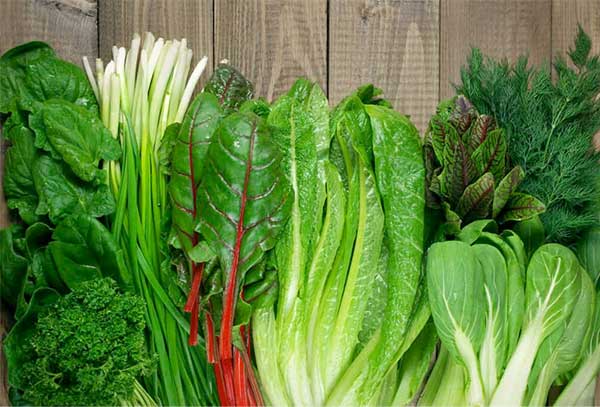
Eat some green leafy vegetables, at least once in a while!
If you’re picky, you might not like this meal option. However, everyone knows that green leafy vegetables are a fundamental class of superfoods. Vegetables such as spinach, kale, cabbage, chard, arugula and some dark lettuce are rich in countless nutrients vital for healthy body function. Like beets, they are one of the only sources of the deep red part of the rainbow of food. Green leafy greens are one of the only sources of rich and dark green. However, that doesn’t mean you don’t have to eat anything but salads every day, as vegetables can be cooked in many delicious ways or even hidden in tasty fruit shakes.
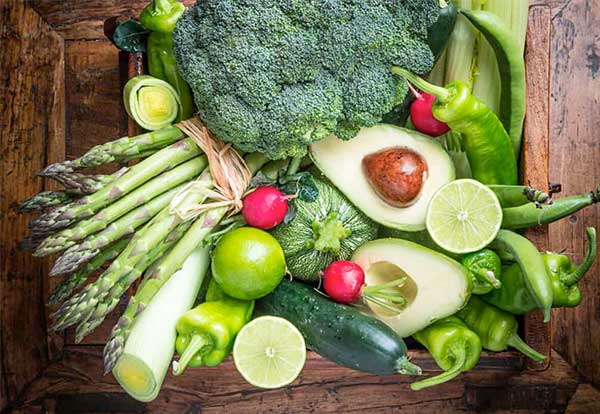
A crucial and unique nutrient in green leafy vegetables is chlorophyll, the chemical that means life to our planet’s plant kingdom. In the human body, chlorophyll serves to help cleanse the body of toxins, including heavy metals and even pesticides. Chlorophyll helps the liver deal with these harmful compounds, reducing the overall burden on the liver. Chlorophyll is also a potent antioxidant that protects liver cells from damage while dealing with toxins. Green leafy vegetables are filled with much goodness that improves health. There is no excuse not to try to at least mask them in a smoothie!

Replace regular potatoes with sweet potatoes.
While sweet potatoes have historically been relegated to the least favorite Thanksgiving garnish or, at best, an alternative to pumpkin pie, people are quickly beginning to realize the importance of sweet potatoes, or yams, as a superfood in their own right. Despite the name batata, it is not a close relative of the standard spud and is a member of the morning glory family. To add to the confusion, it is also not a true yam, indigenous to Africa and South America. Sweet potato owes its superfood status to the natural antioxidant beta-carotene, which is also found in carrots.
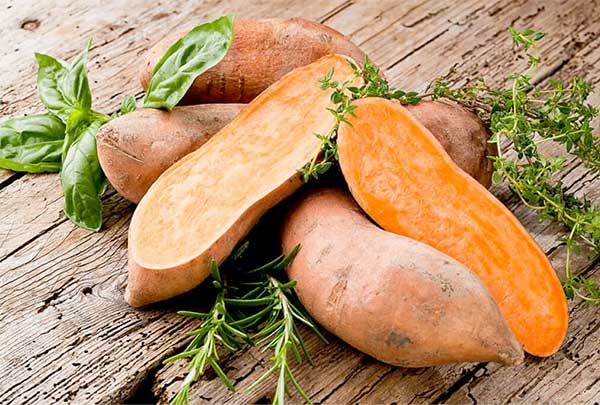
Beta-carotene is converted to vitamina in the body, specifically within the liver. Vitamin a is essential for healthy eyesight and many other body functions. While vitamina can be taken through supplements, it is a fat-soluble vitamin and can build up in the liver and begin to damage the liver. By far the safest and most natural way to increase your body’s vitamina levels is by eating foods rich in beta-carotene such as sweet potatoes. Sweet potatoes are also rich in vitamin c and fiber, which help maintain a healthy immune system and digestive process.
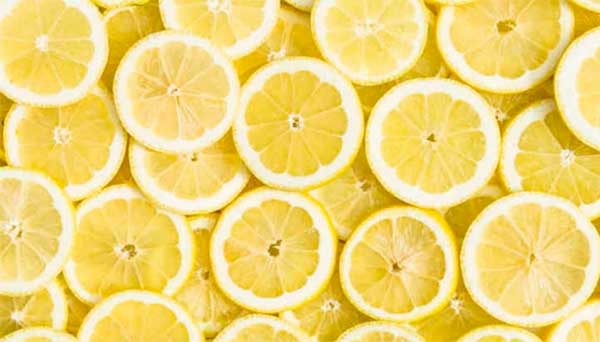
<!–page–>
Lemons can do wonders for liver health.
Many liver and kidney diseases, as well as high blood pressure, often require a low-sodium diet to help maintain health. Most of these diets recommend an unusual replacement for the sodium we crave: lemon! Lemon is full of electrolytes that the body needs, just like sodium, but it does not dehydrate the body’s cells as sodium does. Lemon combines wonderfully in sweet and savory dishes, so incorporating more lemon meat or juice into your diet is very easy. Rich in vitamin c and many important antioxidant compounds, lemons also benefit overall health through anti-inflammatory actions and immune boosters.
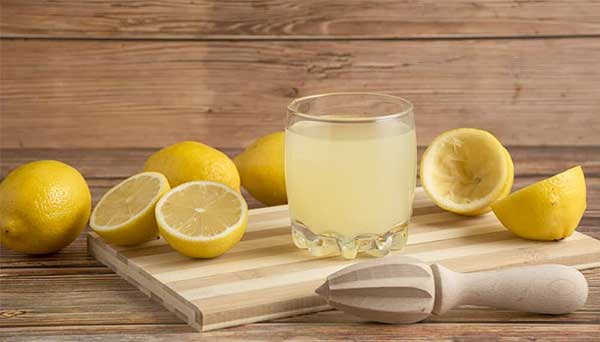
Despite being quite acidic, lemons have an alkalizing effect on the body. That means it makes the body’s cells more basic or alkaline rather than acidic. Lemon and its various beneficial chemicals are put to work as soon as they enter the body. What do they do? They help excrete waste, develop the immune system and help the liver neutralize harmful toxins. Few things surpass a bowl full of fresh lemons like a superb cooking accent or a centerpiece of the dining room. Challenge yourself to buy lemons and incorporate them into your diet. Although not healthy, a great first experiment would be a lot of lemon bars!

Add avocado to your diet to help protect your liver.
Fats are, in fact, a balancing act for the liver. Too much fat can build up in the liver, contributing to the development of non-alcoholic fatty liver disease. Not having enough fat means your liver doesn’t have the energy it needs to function. In turn, it will not be able to remove toxins from the body. The best way to approach this balance account is to make sure that most of the fats in your diet are healthy fats. Diets high in unhealthy fats, such as trans or saturated fats, can also inhibit bile production, which also impairs the liver’s ability to process and eliminate toxins.
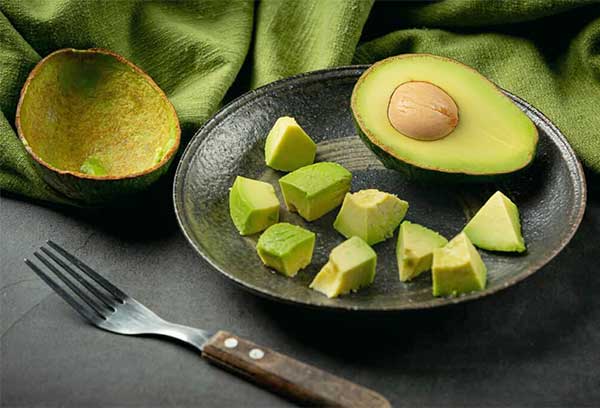
A great source of healthy fat for your diet is avocado. While it may have been briefly the food of millennials who tease toast, people have long viewed avocado asa superfood for its wealth of healthy fats. Avocado can add a large dose of fat to salads, sandwiches, smoothies, and more. People often use it as a vegetarian or vegan substitute for mayonnaise in salty dishes. Avocados’ healthy fats are particularly effective in helping your body produce high levels of glutathione, an important chemical that your liver relies on to help in the processing and elimination of various toxins.
